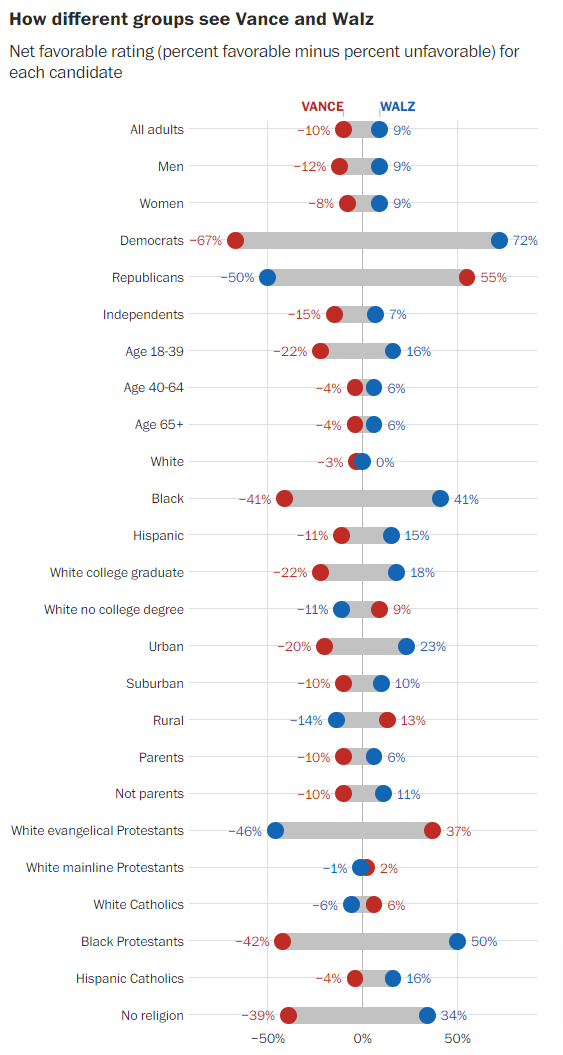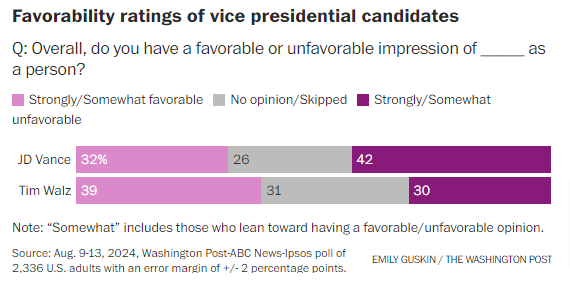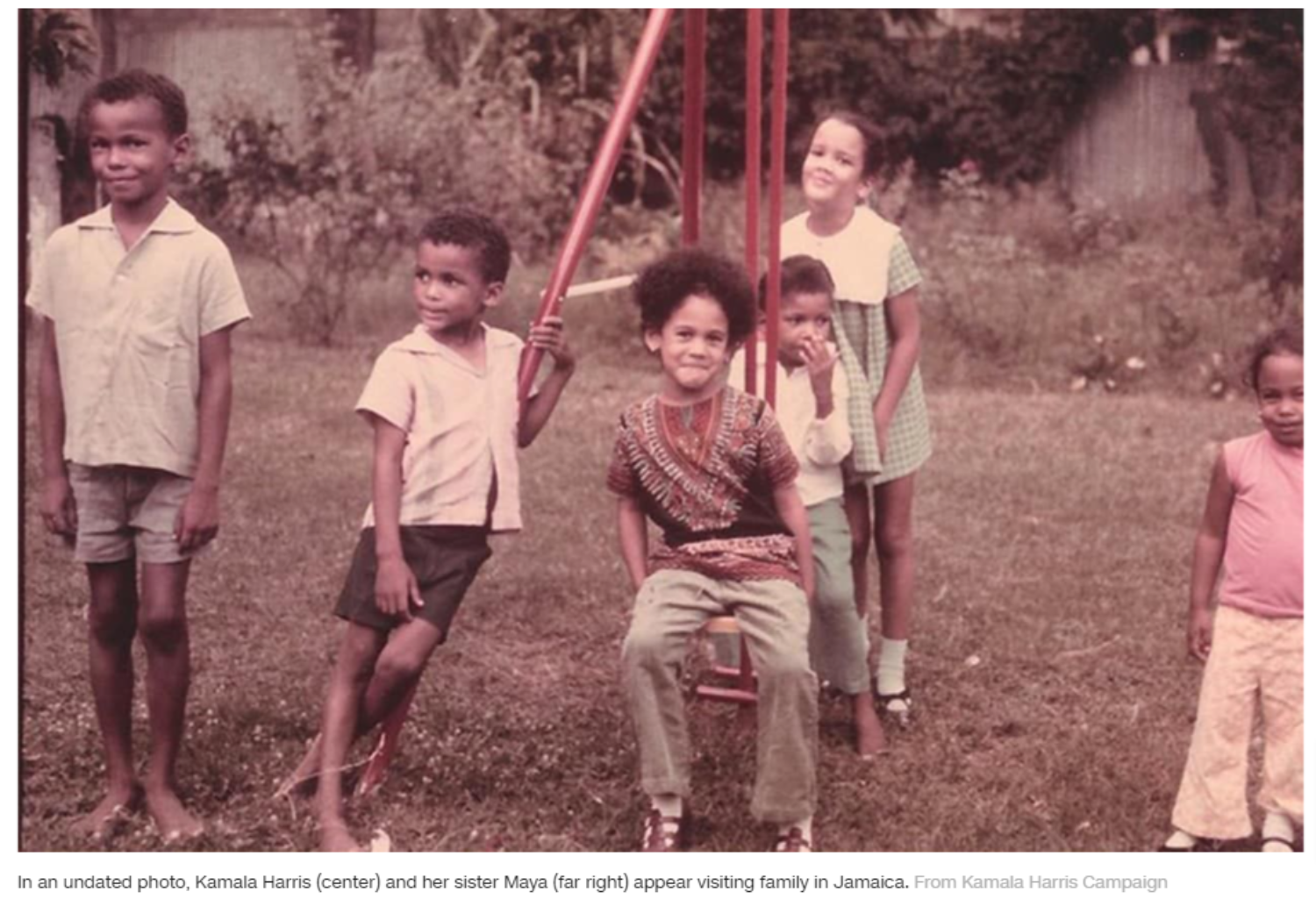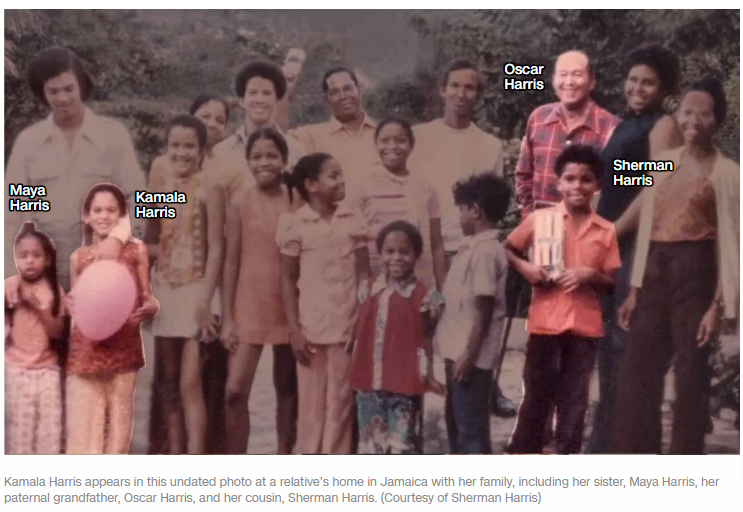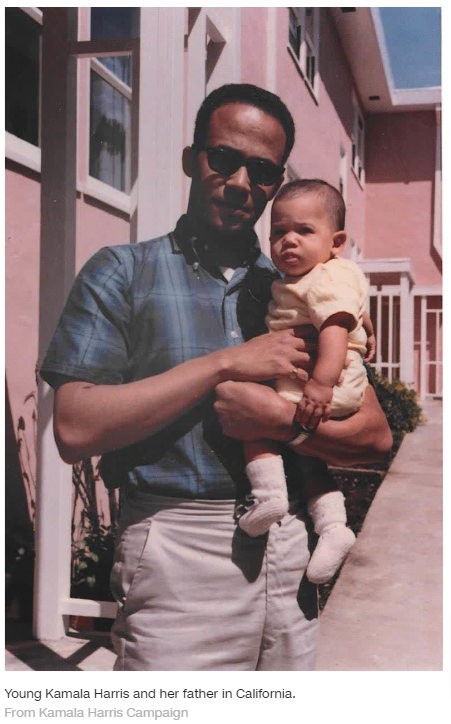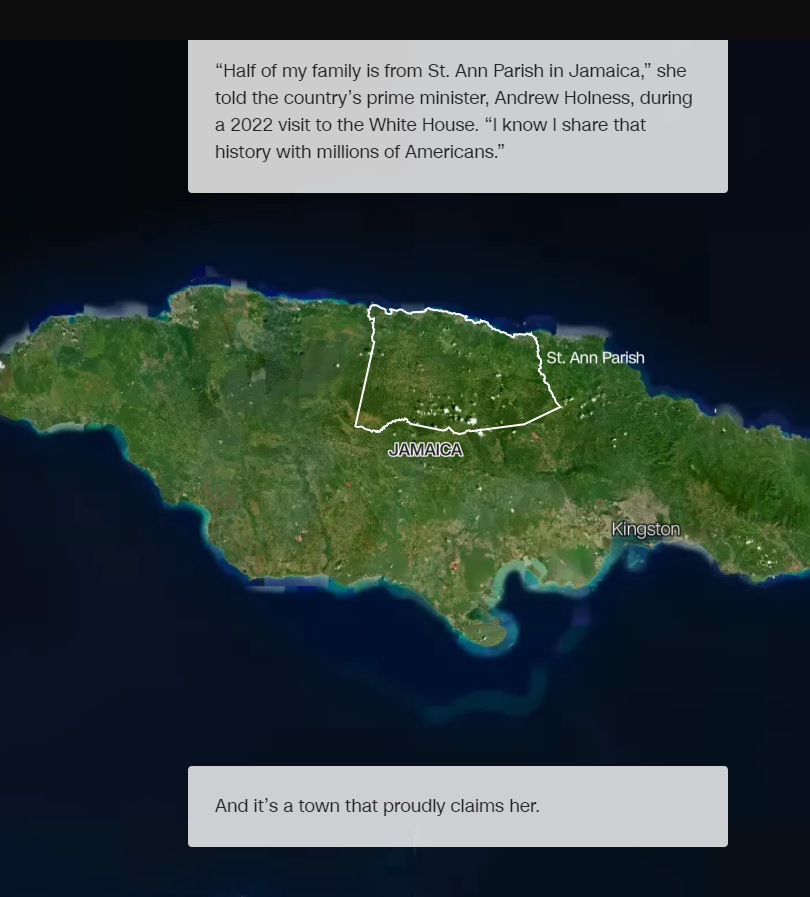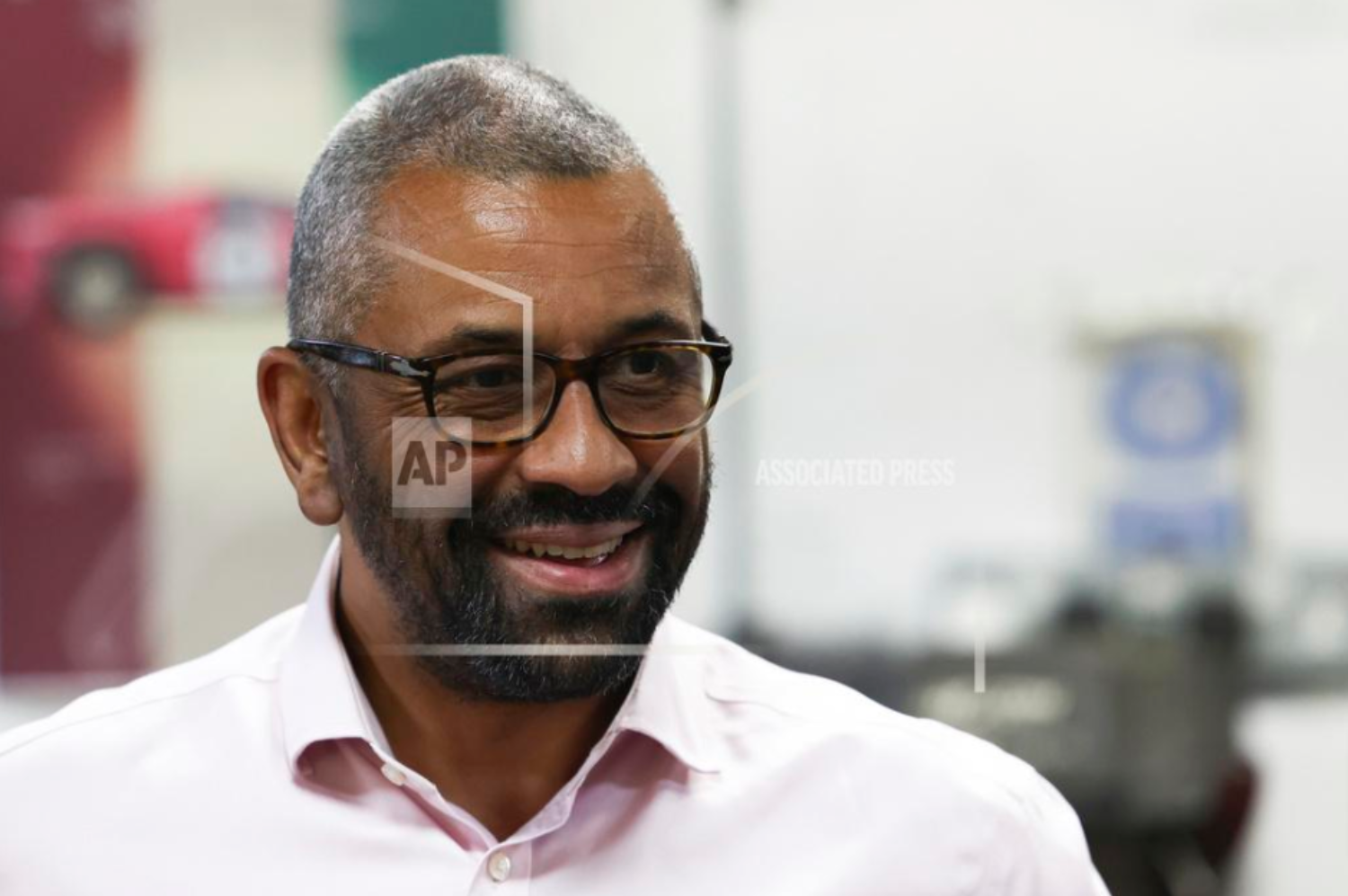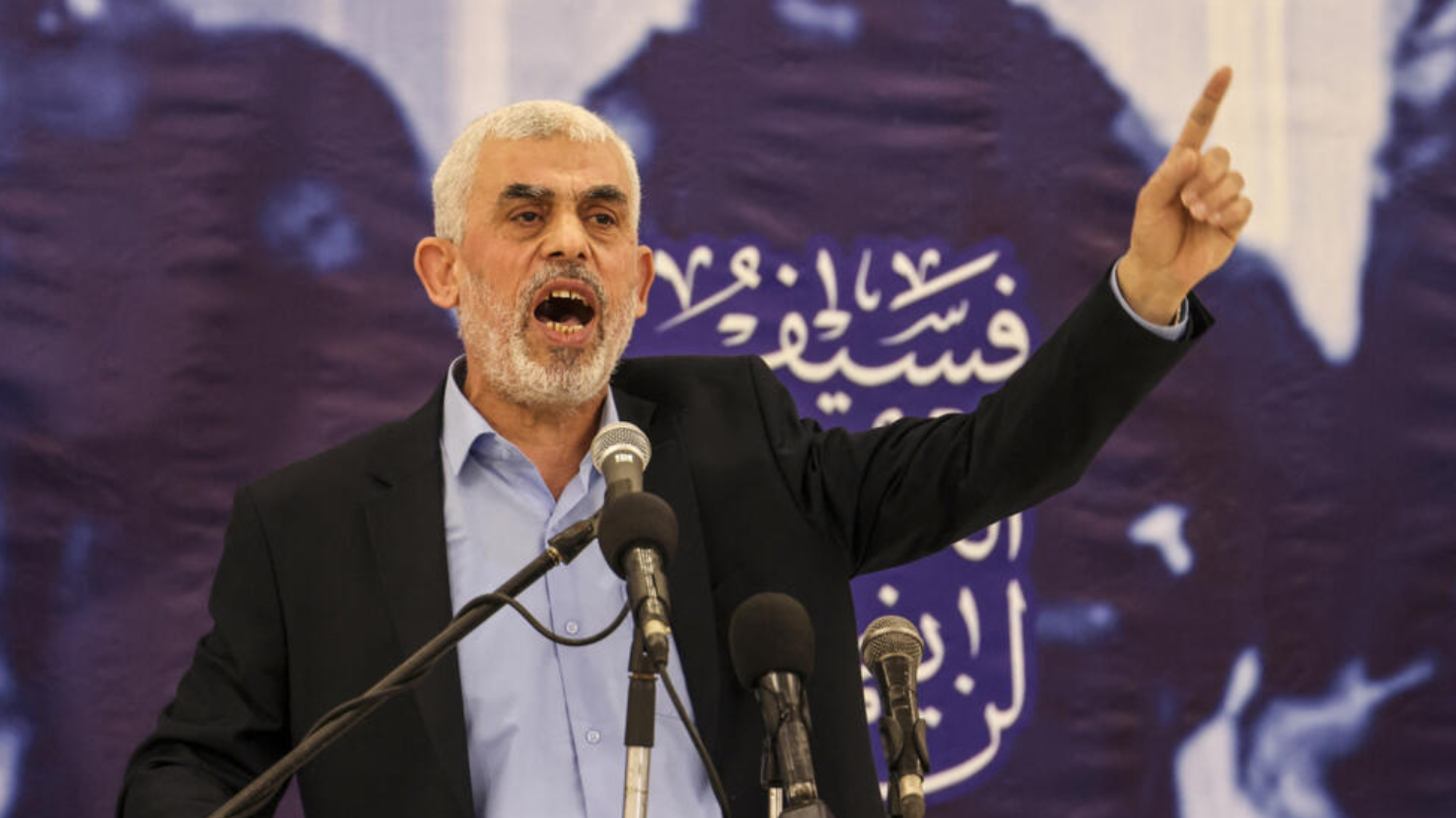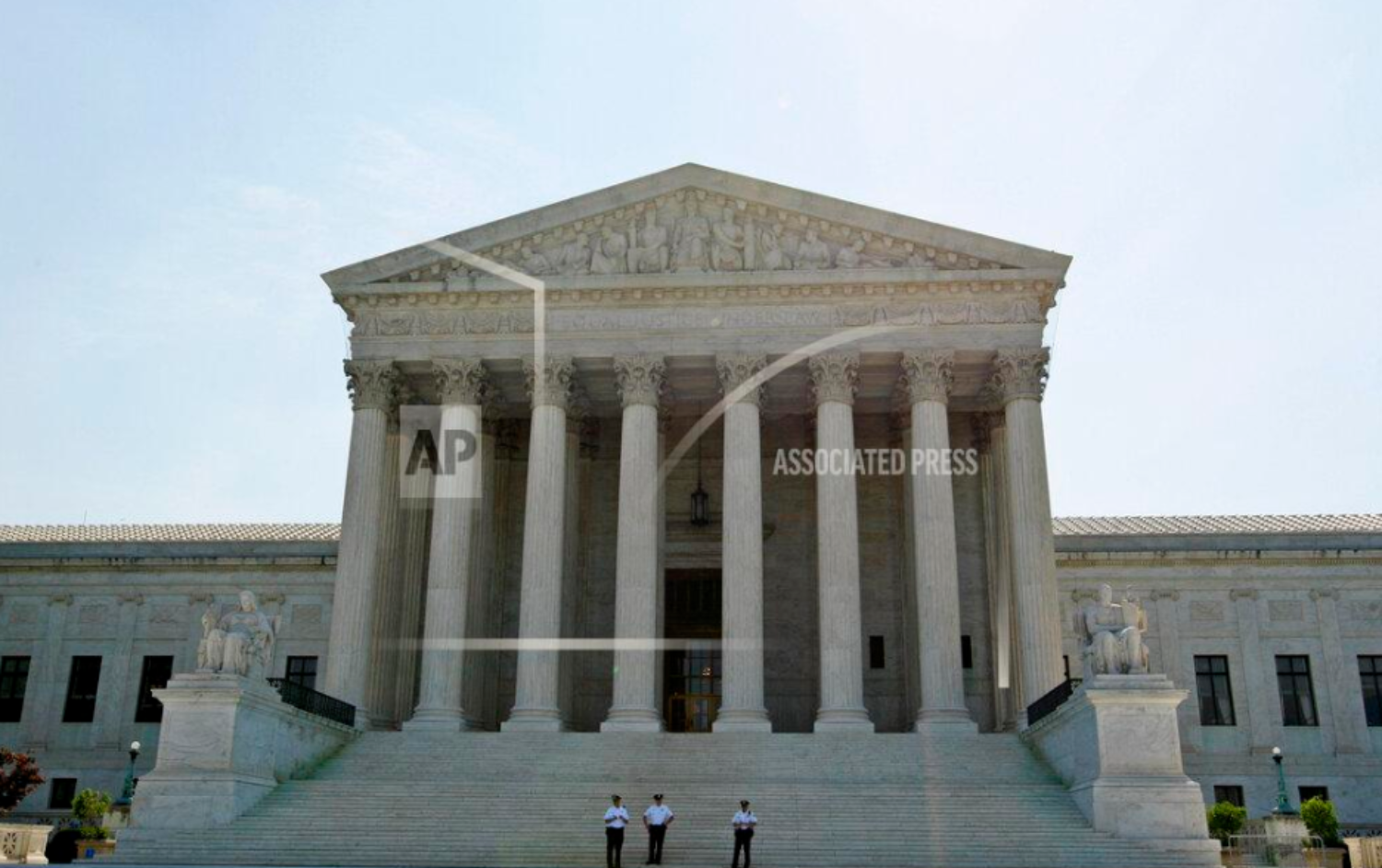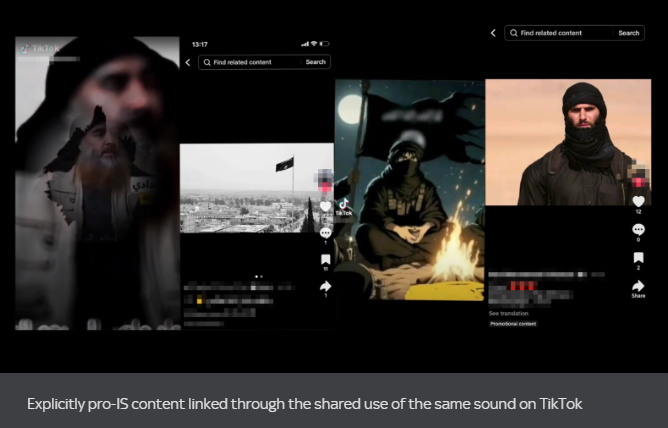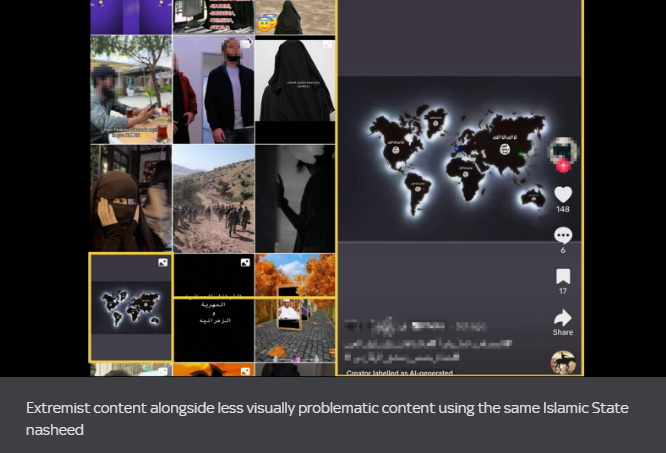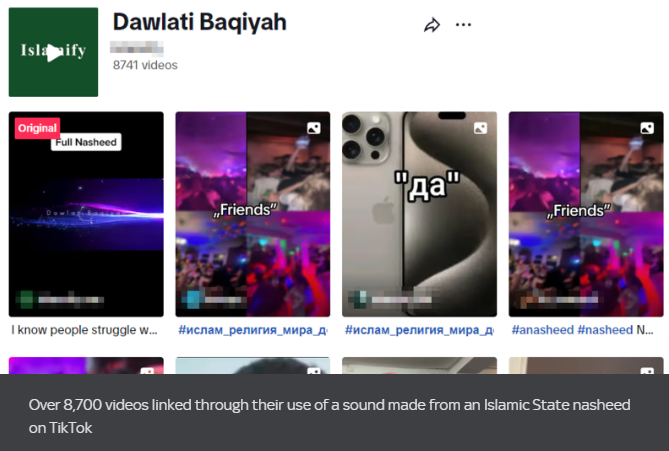-
Posts
10,807 -
Joined
-
Last visited
Content Type
Events
Forums
Downloads
Quizzes
Gallery
Blogs
Everything posted by Social Media
-
As the 2024 presidential election approaches, former President Donald Trump finds himself facing an unexpected challenge from some of the internet’s most influential far-right figures. These hard-right provocateurs, who once championed Trump’s rise to power, are now turning against his campaign, not in opposition to Trump himself but to his campaign aides and strategy. Their discontent threatens to fracture the unity that the Republican Party so desperately needs in the final weeks leading up to the November vote. One of the most vocal critics is Nick Fuentes, a white supremacist and podcaster who made headlines after dining with Trump at Mar-a-Lago in 2022. Fuentes, who has built a following among the far-right, took to X (formerly Twitter) to voice his dissatisfaction with Trump’s campaign. “Trump’s campaign is blowing it,” Fuentes declared, criticizing the campaign for not positioning itself more to the right. He warned that the campaign was “headed for a catastrophic loss,” a sentiment that resonated with his followers, with his post garnering 2.6 million views by Wednesday. Laura Loomer, another far-right activist and a known supporter of Trump, echoed similar sentiments. Once described by Trump as “very special,” Loomer criticized his campaign’s “weak” surrogates for unraveling the momentum he had built. In a post on X, she urged Trump to change his approach quickly, stating, “We can’t talk about a stolen election for another 4 years.” Her post, which was liked over 8,000 times, underscored the growing frustration among Trump’s far-right supporters. Candace Owens, a far-right influencer with a massive following of 5 million on X, added her voice to the growing chorus of discontent. In a recent podcast, Owens described the internal conflict within Trump’s base as a “MAGA Civil War.” She criticized the campaign for softening Trump’s policies and persona in an effort to appeal to mainstream voters. “I’m just not sure who is driving the MAGA bus anymore,” Owens said, stressing that Trump’s campaign risks losing the support of his most loyal followers. “You’re losing that support from the people that believed in you. … You need those people.” The criticism from these far-right figures highlights a significant vulnerability in Trump’s campaign. These influencers have long been instrumental in generating the viral energy that fueled Trump’s political career, particularly among predominantly White male voters. Their discontent with the campaign’s direction, especially on issues like race and immigration, could undermine Trump’s appeal to his core base. The far-right activists argue that the campaign’s failure to adopt harder-right positions is a mistake that could cost Trump the election. They have also called for the firing of the campaign’s co-managers, Chris LaCivita and Susie Wiles, whom they blame for the campaign’s lackluster strategy. Despite their harsh criticism of the campaign, many of these far-right influencers continue to express support for Trump himself. However, they have vowed to intensify their attacks on his campaign unless significant changes are made. This presents a challenge for Trump’s campaign officials, who have been working to distance themselves from extreme voices out of concern that they could alienate moderate voters. Trump’s decision to rehire his 2016 campaign manager, Corey Lewandowski, on Thursday was seen by some as a response to the pressure from the far right. Fuentes, for example, declared this move a “first victory” for his campaign. However, Loomer was quick to dismiss Fuentes’ claim, mocking him for having “nothing to do” with Lewandowski’s return and urging him to “stop pretending like he is calling the shots.” Within the campaign, there is growing concern that the far-right influencers, particularly Fuentes and his followers, known as “groypers,” are becoming a noisy and counterproductive distraction. A person familiar with the campaign’s operations, speaking on condition of anonymity, suggested that Fuentes’ actions could hinder efforts to bring new talent into the campaign. “If anything, [Fuentes] is hurting the idea of getting fresh blood into the campaign, because it makes it far more difficult for Trump if it looks like he’s responding to the groypers,” the source said. The Trump campaign’s official response to these developments has been to downplay the criticism. In an August 11 post on Truth Social, Trump insisted that he was “leading in almost all of the REAL polls” and praised his team for “doing a great job.” JD Vance, Trump’s running mate, also dismissed Fuentes during an appearance on CBS, calling him a “total loser” and advising Trump to “ignore” such trolls until they “go away.” However, the far-right criticism has stirred unrest among some of Trump’s most ardent online supporters. Brenden Dilley, a pro-Trump podcaster in Georgia, expressed suspicion that Fuentes and other far-right critics might be part of a secret psychological operation, or “psy-op,” designed to undermine Trump’s campaign. “I’ve got a job to do, and these people are a problem,” Dilley said, questioning whether these critics were being compensated or deployed as a collective to harm the campaign. Fuentes, in response, denied being paid and stated that his actions were motivated solely by his far-right views, which he described as “far-right reactionary.” Colin Henry, a researcher at George Washington University who studies political extremism online, noted that the far-right influencers’ frustration has grown in recent weeks due to Trump’s declining poll numbers and the campaign’s rejection of hard-line policies like Project 2025. “They saw that as a shot across the bow from the mainstream folks, who wanted to do all this stuff with policy and institutions,” Henry said. The far-right influencers’ anger is significant because they have shown a remarkable ability to influence conservative discourse and push the Republican Party further to the right. Ben Lorber, a senior researcher at Political Research Associates, warned that this movement has the potential to pressure Trump into adopting more extreme positions. “This movement has the ability to move conservative discourse and to open up space far to the right of acceptable conservative opinion for people like Trump to move further rightward,” Lorber said. Fuentes has mobilized his followers to take their demands directly to Trump’s campaign, using platforms like X and Truth Social to push hashtags like #NoMoreImmigration and #FireLaCivita to the top of trending topics. He has also encouraged his followers to engage in “guerrilla” tactics, such as mass appearances at Trump rallies in key battleground states like Michigan. Fuentes has even urged his followers to withhold their votes for Trump, arguing that it is the only way to wake up a campaign that he claims lacks energy and enthusiasm. “If they blame me for Trump losing, so be it,” Fuentes said. “He’ll have lost because he stopped talking to the MAGA base he had in 2016.” Jared Holt, a senior researcher at the Institute for Strategic Dialogue who studies online extremism, observed that while Fuentes may have lost some influence since Trump’s presidency, he still retains a “cult following” among young conservatives. This group could indirectly pressure the campaign to adopt more extreme positions. Fuentes’ followers have worked with far-right members of Congress, including Reps. Marjorie Taylor Greene and Paul A. Gosar, and have at times aligned with more mainstream pro-Trump accounts. The far-right’s efforts to push Trump’s campaign further to the right have already had a noticeable impact. For example, the campaign’s official Twitter account, @TrumpWarRoom, recently posted a controversial tweet that labeled a photo of Black men as “Your Neighborhood Under Kamala” and warned, “Import the third world. Become the third world.” This type of messaging reflects the influence of far-right rhetoric within Trump’s campaign. Fuentes, who has a history of promoting a white ethnostate and advocating for the end of even legal immigration, has shown no signs of backing down. He continues to rally his followers for what he calls “Groyper War 2,” a sequel to a series of disruptive events in 2019 where they targeted “fake conservatives” with provocative questions on issues like race and LGBTQ+ rights. Amanda Moore, a left-wing activist who has followed Fuentes’ group, noted that this effort was “extremely successful” in pushing the party to the right. However, she also warned that this success could prove costly for Trump by making his base more volatile. “This is what happens when you’re walking the line for years. This is where it’s going to get you,” Moore said. As Trump’s campaign navigates these internal conflicts, the former president faces the daunting task of uniting his base while also appealing to a broader electorate. The growing discontent among far-right influencers underscores the challenge of balancing these competing demands. With the election drawing closer, how Trump responds to this pressure could determine the outcome of his campaign and the future direction of the Republican Party. Credit: W.P. 2024-08-20 Get our Daily Newsletter - Click HERE to subscribe Cigna offers a variety of health insurance plans designed to meet the minimum requirement for medical treatment coverage, with benefits reaching up to THB 3 million. These plans are tailored to provide comprehensive healthcare solutions for expatriates, ensuring peace of mind and access to quality medical services. To explore the full range of Cigna's expat health insurance options and find a plan that suits your needs, click here for more information.
-
Elon Musk’s financial challenges at X, the company formerly known as Twitter, are becoming increasingly apparent, causing concern among Tesla investors. As the tech billionaire struggles to stabilize the finances of his $44 billion acquisition, there is growing apprehension that Musk may need to liquidate more Tesla stock to inject fresh capital into the beleaguered social media platform. The root of the problem lies in Musk’s antagonistic stance toward advertisers, which has severely impacted X’s revenue stream. His repeated outbursts against advertisers have dried up the platform's main source of income, leaving X in a precarious financial position. A recent decision to sue advertisers for following his advice to avoid placing ads on the platform has only exacerbated the situation. To salvage his massive investment, Musk may be forced to sell a significant portion of his Tesla shares, a move that could have dire consequences for Tesla’s stockholders. “I would be expecting something between $1 and $2 billion in stock,” said Bradford Ferguson, president and chief investment officer of Halter Ferguson Financial, in a YouTube video posted on Wednesday. According to Ferguson, such a sale could result in a 5% to 10% drop in Tesla’s stock value. “It’s a massive hole they need to plug,” he added. Elon Musk was not available for comment when contacted by Fortune. Ferguson’s assessment was based on internal second-quarter figures recently obtained by the New York Times. These figures paint a grim picture of X’s financial health. The report revealed that X generated $114 million in revenue from the U.S., its largest market, representing a 25% decline over the previous quarter and a staggering 53% drop from the same period the previous year. As troubling as these numbers are, the situation appears even bleaker when viewed in the context of pre-acquisition performance. In the second quarter of 2022, before Musk took control, X’s revenue stood at $661 million. Adjusting for inflation, this represents an 84% collapse in revenue in today’s dollars. The financial outlook for X remains uncertain, as the company does not release financial results. However, Musk himself acknowledged in November that X could face bankruptcy due to the ongoing advertiser boycott. Since then, any talk of achieving cash flow breakeven or turning a profit has ceased—an unusual stance for Musk, who is known for setting aggressive, often unrealistic, targets. Musk's dilemma is compounded by the fact that, despite his immense wealth, estimated at over $236 billion by Forbes, he cannot easily use his personal fortune to bail out X. His wealth is largely tied up in various corporate holdings, including SpaceX, Neuralink, and his newest venture, xAI. None of these investments are easily liquidated. Only Tesla is a publicly traded company, making the sale of Tesla stock the most straightforward solution. This is not the first time Musk has turned to Tesla shares to finance his endeavors. To fund the bulk of the $44 billion purchase price for Twitter, Musk sold off significant portions of his Tesla holdings, sending the stock to two-year lows. In December 2022, Musk attempted to reassure investors during a Twitter Spaces discussion, promising not to sell any more Tesla shares to fund the struggling platform for at least another 18 to 24 months. “Definitely not next year under any circumstances. Probably not the year after either,” he said at the time. “You can count on me, no stock sales until 2025 or something.” While this pledge provided some relief to Tesla investors, it came with an implicit warning: the possibility that Musk might need to sell more stock in the future. With 2025 rapidly approaching and X’s financial situation likely worsening, Ferguson believes that Musk may be forced to cash in on his Tesla shares sooner rather than later. “He was probably a little more optimistic in December 2022 and didn’t anticipate it would get worse,” Ferguson noted. The financial pressure on Musk may stem from the need to ensure X meets the loan covenants for the $13 billion in leveraged buyout (LBO) debt it assumed as part of the acquisition. A breach of these covenants could result in higher interest rates or even demands from banks for repayment. Gary Black, managing partner and cofounder of the Future Fund, shares the concern that the risks of a share sale are increasing. “The bleeding of X will continue and at some point Elon will have to sell more Tesla shares to plug the $1–2 billion per year hole at X,” the longtime Tesla bull stated in a social media post. As the financial woes at X intensify, Tesla investors are left in a precarious position. The possibility of Musk selling more Tesla shares to rescue his social media venture looms large, potentially leading to further declines in Tesla’s stock price. For those who hold Tesla shares, the coming months could prove to be a period of significant uncertainty and volatility. Credit: Fortune 2024-08-20 Get our Daily Newsletter - Click HERE to subscribe Cigna offers a variety of health insurance plans designed to meet the minimum requirement for medical treatment coverage, with benefits reaching up to THB 3 million. These plans are tailored to provide comprehensive healthcare solutions for expatriates, ensuring peace of mind and access to quality medical services. To explore the full range of Cigna's expat health insurance options and find a plan that suits your needs, click here for more information.
-
Vice President Kamala Harris, on the campaign trail for the 2024 presidential election, has laid out an ambitious economic plan that she promises to prioritize within her first 100 days in office, should she be elected. The proposals, announced on Friday, reflect Harris's commitment to addressing some of the most pressing issues facing American families today, including tax relief, affordable housing, and combating inflation. The plan is part of a broader economic strategy that Harris's campaign says will strengthen the middle class, support working families, and promote economic fairness. One of the central pillars of Harris's economic agenda is the expansion of the Child Tax Credit (CTC), a move that has been at the forefront of Democratic policy discussions in recent years. Harris's plan calls for a significant enhancement of the CTC, offering a $6,000 tax cut to families with newborn children. This proposal is seen as a direct response to the economic challenges that many families face in the early years of parenting, and it aims to provide substantial financial relief to middle-income and low-income families during the first year of their child's life. "This plan would allow for $6,000 in total tax relief for middle-income and low-income families," the Harris campaign detailed in a fact sheet, emphasizing the importance of supporting families during a critical time. In addition to the new tax cut for families with newborns, Harris's plan also advocates for the restoration of an expanded Child Tax Credit that was originally part of the American Rescue Plan, a sweeping coronavirus relief package passed in 2021. Under this restored plan, eligible families would receive a $3,600 per child tax credit, providing much-needed financial support to millions of families across the country. The push for an expanded CTC comes on the heels of recent legislative efforts by Senate Republicans to block a bill aimed at raising the credit, citing concerns over work requirements for recipients. Harris's plan not only seeks to counter these roadblocks but also aims to expand the Earned Income Tax Credit to cover lower-income workers who are not raising children, broadening the safety net for some of the most vulnerable workers in the economy. Another notable aspect of Harris's economic agenda is her proposal to combat price gouging, particularly in the food and grocery sectors. Harris has called for the "first-ever federal ban on price gouging on food and groceries," a bold move that underscores her commitment to tackling inflation and protecting consumers. While the specifics of how this ban would be implemented remain to be detailed, Harris's campaign has indicated that it would be part of a broader strategy to lower grocery costs and ensure that corporations are not unfairly exploiting consumers to drive up profits. "The plan will set rules to ensure corporations can't unfairly exploit consumers to run up excessive profits on food and groceries," the campaign noted, reflecting widespread voter concerns about inflation in the lead-up to the November presidential election. The proposal also includes a call for new authorities to be granted to the Federal Trade Commission (FTC) and state attorneys general, enabling them to investigate and impose strict penalties on companies found to be engaging in price gouging. This aspect of the plan highlights Harris's focus on strengthening regulatory oversight and protecting consumers from corporate malpractices that exacerbate economic inequalities. Housing affordability is another critical issue addressed in Harris's economic plan. The vice president has set an ambitious goal of constructing 3 million new housing units over the next four years, a move designed to alleviate the ongoing housing crisis that has made homeownership and rental housing increasingly unaffordable for many Americans. Harris's plan includes what she describes as the "first-ever" tax incentive for building starter homes aimed at first-time homebuyers, an effort to make homeownership more accessible to young families and individuals entering the housing market for the first time. To further boost the construction of affordable rental housing, Harris's plan calls for an expansion of existing tax credits for businesses that build such housing, as well as the creation of a $40 billion federal fund dedicated to supporting new construction projects. The plan also proposes making certain federal lands eligible for repurposing into new affordable housing developments, a move that could help address the shortage of affordable housing in urban and suburban areas. Harris's housing agenda also includes the passage of the Stop Predatory Investing Act, which aims to curb rising home prices by targeting tax breaks for investors who purchase large numbers of single-family rentals. Additionally, the plan supports the Preventing the Algorithmic Facilitation of Rental Housing Cartels Act, which would give the FTC more power to crack down on rent price coordination among property managers and landlords. Harris's economic vision also extends to helping first-time homebuyers. Building on a previous proposal from the Biden administration, Harris's plan seeks to provide first-generation homebuyers with $25,000 in down-payment assistance, along with a tax credit specifically for first-time homebuyers. The vice president's plan aims to "simplify and significantly expand" the Biden administration's efforts by ensuring that all eligible first-time homebuyers receive the financial support they need to enter the housing market. Harris's campaign has emphasized that this proposal would provide "more generous support for first-generation homeowners," reflecting her commitment to addressing the barriers that prevent many Americans from achieving the dream of homeownership. In a move that surprised some Democrats, Harris recently voiced support for ending taxes on tips for service and hospitality workers. This proposal, which echoes a similar plan pitched by former President Donald Trump earlier this summer, underscores Harris's focus on providing relief to low-wage workers who have been disproportionately affected by economic inequality. Speaking at a rally in Las Vegas, Harris pledged to fight for working families by raising the minimum wage and eliminating taxes on tips for service and hospitality workers. "It is my promise to everyone here, when I am president, we will continue to fight for working families, including to raise the minimum wage and eliminate taxes on tips for service and hospitality workers," Harris declared, signaling her commitment to improving the economic conditions for some of the country's most vulnerable workers. However, this proposal has not been without controversy. The Committee for a Responsible Federal Budget recently estimated that exempting tip income from federal income taxes, combined with raising the minimum wage, could add between $100 billion and $200 billion to the nation's deficits over a ten-year period. This potential impact on the federal budget has raised concerns among some policymakers and economists, highlighting the challenges that Harris may face in balancing her ambitious economic goals with the realities of fiscal responsibility. As Vice President Harris continues to campaign for the presidency, her economic plan is likely to be a focal point of debate and discussion. With its emphasis on tax relief, affordable housing, consumer protection, and support for working families, Harris's vision represents a comprehensive approach to addressing the economic challenges facing the nation. Whether these proposals will resonate with voters and translate into electoral success remains to be seen, but they undoubtedly set the stage for a robust policy debate in the months leading up to the 2024 election. Harris's commitment to her economic agenda signals her determination to lead with a focus on fairness, equity, and opportunity for all Americans. Credit: Hill 2024-08-19 Get our Daily Newsletter - Click HERE to subscribe Cigna offers a variety of health insurance plans designed to meet the minimum requirement for medical treatment coverage, with benefits reaching up to THB 3 million. These plans are tailored to provide comprehensive healthcare solutions for expatriates, ensuring peace of mind and access to quality medical services. To explore the full range of Cigna's expat health insurance options and find a plan that suits your needs, click here for more information.
-
Recent polls reveal a growing consensus among Americans in opposition to illegal immigration and a strong demand for military involvement at the U.S. southern border. These findings underscore a significant critique of the Biden-Harris administration's handling of border security, with the majority of the public expressing disapproval of current policies and a desire for stricter enforcement. A new poll conducted by Napolitan News Service highlights this sentiment, with an overwhelming 84% of registered voters stating that illegal immigration is detrimental to the United States. In contrast, only 12% of respondents believe it has a positive impact. This long-standing opposition to illegal immigration has remained relatively unchanged for decades, reflecting deep-rooted concerns among the electorate. While the majority of Americans oppose illegal immigration, there is substantial support for legal immigration, with 71% of those polled acknowledging its benefits to the country. However, the primary concern driving opposition to illegal immigration is crime. Among those surveyed, 49% identified crime as their top worry, while 28% cited the potential for criminals and terrorists to enter the country through illegal means. Additionally, 26% pointed to the economic and healthcare burdens imposed by illegal immigration, 16% expressed concerns about dangerous individuals entering the country, and 5% focused on the issue of drug trafficking. "Overall, these numbers reflect the fact that voters see America as both a nation of immigrants and a nation of laws," said Scott Rasmussen, president of RMG Research. He added that voters understand the motivations behind immigration but are frustrated with the federal government's perceived failure to curb illegal immigration. In a separate poll, 75% of respondents expressed support for deploying U.S. troops to the southern border to combat drug cartels and enhance border security. This marks a significant increase in support for military involvement since President Biden took office, with the total including 90% of Republicans and 62% of Democrats backing the idea. These findings are consistent with other recent polls that illustrate widespread concern over the border situation. A Rasmussen Reports poll found that nearly two-thirds of those surveyed believe the situation at the southern border should be classified as an invasion. Furthermore, large majorities emphasized the importance of border security as a vital national interest (70%) and acknowledged the existence of a crisis (72%). The narrative surrounding the border crisis has been notably influenced by actions taken in Texas, where 55 counties have declared the situation an invasion, and 60 counties have issued disaster declarations due to the border crisis. This shift in language and perspective has resonated with the public, further amplifying concerns about border security. A Monmouth University Polling Institute report found that a majority of respondents support building a border wall, a policy initiated by former President Donald Trump and discontinued by President Biden on his first day in office. Over 80% of those polled view illegal immigration as a serious problem, with 61% describing it as "very serious" and 23% as "somewhat serious." The report also noted that public concern about illegal immigration has escalated during President Biden's tenure compared to the previous two administrations. In Texas, a University of Texas/Texas Politics Project (UT/TPP) poll revealed strong support for border security measures, including the construction of a border wall and the deployment of additional state police and military resources. Notably, this support extends across demographic lines, with a majority of Hispanic and Black Texans also backing these measures. The UT/TPP poll also indicated that Democrats in Texas are increasingly aligning with former President Trump on border security issues. Overall, 65% of Texas voters support the state's efforts to build its own wall and barriers, 57% back the installation of marine buoys in the Rio Grande River, and 66% endorse deploying additional resources to the border. Moreover, the poll found that 56% of Hispanic Texas voters disapprove of President Biden's handling of immigration and border security, further highlighting the widespread discontent with current policies. Texans have overwhelmingly expressed support for Governor Greg Abbott's border security initiatives under Operation Lone Star, including the construction of barriers, deployment of additional resources, and the transportation of illegal immigrants to northern states. These findings are in line with those from The Center Square Voters’ Voice polls, which consistently show high levels of concern about border security. A poll conducted last year found that 82% of Americans are concerned about border security, with 50% stating that the situation has worsened under the Biden-Harris administration. Another poll from March revealed that 62% of voters believe the country is moving in the wrong direction, with illegal immigration nearly tying with inflation as the top concern. Additionally, a Voter’s Voice poll highlighted that Americans are in favor of states playing a more significant role in border security, supporting the rights of Texas and other states to take measures to secure their borders independently. These polls collectively paint a picture of a nation deeply concerned about illegal immigration and border security, with a clear majority advocating for stronger enforcement measures and increased military involvement to address the crisis at the southern border. Credit: NYP 2024-08-19 Get our Daily Newsletter - Click HERE to subscribe Cigna offers a variety of health insurance plans designed to meet the minimum requirement for medical treatment coverage, with benefits reaching up to THB 3 million. These plans are tailored to provide comprehensive healthcare solutions for expatriates, ensuring peace of mind and access to quality medical services. To explore the full range of Cigna's expat health insurance options and find a plan that suits your needs, click here for more information.
-
In the evolving landscape of American politics, first impressions can often set the stage for a candidate's future success or struggles. This dynamic is clearly playing out in the early reactions to Minnesota Governor Tim Walz and Ohio Senator JD Vance, both of whom have recently been thrust into the national spotlight as vice-presidential picks in the upcoming election. A recent Washington Post-ABC News-Ipsos poll provides a snapshot of how these two candidates are being received by the American public, and the results reveal a stark contrast between the two. Governor Tim Walz, chosen by Vice President Kamala Harris as her running mate, seems to be off to a solid start. The poll shows that 39 percent of Americans have a favorable impression of Walz, compared to 30 percent who view him unfavorably, giving him a net favorability rating of +9 points. This early positive reception suggests that Walz is resonating with a broad swath of the electorate, despite the fact that more than a quarter of Americans are still undecided about him. On the other hand, Senator JD Vance, the vice-presidential pick of former President Donald Trump, is facing a more challenging introduction to the national stage. According to the same poll, only 32 percent of Americans have a favorable impression of Vance, while 42 percent view him unfavorably, resulting in a net favorability rating of -10 points. This indicates that Vance has a significant gap to close if he hopes to improve his standing with the broader electorate. Within their respective parties, both Walz and Vance are well-liked, though Walz holds a stronger position. Among Democrats, Walz enjoys a net favorability rating of +72, reflecting strong support from his party's base. Vance, while also well-regarded within his own party, has a net favorability of +55 among Republicans, a solid but somewhat less enthusiastic endorsement compared to Walz’s standing among Democrats. However, Vance's struggles become more apparent when examining his favorability across various demographic groups. He faces negative ratings among men (-12), women (-8), and people under 40 (-22). Even among those aged 65 and older, a typically more conservative demographic, Vance’s net favorability is slightly negative at -4 points. These figures suggest that Vance’s appeal is limited, particularly among younger voters and women, both of which are crucial demographics in any national election. Vance’s negative ratings extend even to groups where one might expect stronger support. Despite his criticisms of Democratic leaders, particularly over issues like family and parenthood, Vance’s net favorability is -10 among both parents and those without children at home. His appeal is primarily concentrated among White Christians, where he enjoys positive ratings, including +37 net favorability among White evangelical Protestants. However, his support among White non-evangelical Protestants and White Catholics is much more tepid, with net favorability ratings of +2 and +6, respectively, margins that are not statistically significant. Vance also performs well among rural Americans (+13 points), yet his support drops off significantly among urban (-20) and suburban Americans (-10), highlighting the challenges he faces in expanding his appeal beyond traditionally Republican-leaning groups. In contrast, Governor Walz appears to have a broader and more evenly distributed base of support. His net favorability is positive among most demographic groups, although not overwhelmingly so. Among people under 40, Walz enjoys a net favorability of +16 points, and he is also positive among those 40 and older, with a net rating of +6. Walz is viewed positively by both men and women, each with a net favorability of +9. Additionally, he has strong support among Black Americans (+41) and Latinos (+15), while White voters are more evenly split between Walz and Vance. A deeper dive into the data reveals significant differences among White voters based on educational attainment. Walz is +18 points positive among White voters with college degrees, while Vance is -22 points negative with this same group. Conversely, Vance is +9 points positive among White voters without bachelor’s degrees, whereas Walz is -11 points negative among this demographic. These differences underscore the continuing educational divide within the electorate, which has become a key factor in modern American politics. The poll also explored public opinion on the candidates’ selections as vice-presidential picks. A slight majority of Americans (52 percent) approve of Harris’s choice of Walz as her running mate, while 44 percent disapprove. In contrast, Trump’s choice of Vance garners less approval, with 45 percent in favor and 50 percent disapproving. Notably, more Democrats approve of Walz’s selection (92 percent) compared to the 82 percent of Republicans who approve of Vance’s candidacy. These ratings are more negative than those for most vice-presidential picks in recent history. For instance, in August 2020, a Washington Post-ABC poll found that 54 percent of Americans approved of Joe Biden’s selection of Kamala Harris as his running mate, while in 2012, 51 percent approved of Mitt Romney’s selection of Representative Paul D. Ryan. In both cases, around 30 percent disapproved. Though the Post-ABC surveys did not measure reactions to Trump’s 2016 choice of Mike Pence, a July 2016 Gallup poll found that 37 percent of voters considered Trump’s selection of Pence as “excellent” or “pretty good,” while 45 percent viewed it as “only fair” or “poor.” Both Vance and Walz bring distinct backgrounds and experiences to their respective tickets. Vance, who gained national attention with his memoir "Hillbilly Elegy," served as a venture capitalist before entering politics and has been a U.S. senator since January 2023. Walz, by contrast, has a background in education and coaching and has served as governor of Minnesota since 2019, following a tenure in the U.S. House of Representatives. As the campaign unfolds, both candidates will have opportunities to reshape their public images and connect with a wider audience. They are set to face off in a debate on October 1, a key moment that could influence public perceptions and alter the dynamics of the race. For now, however, Walz seems to be benefiting from a more favorable first impression, while Vance has work to do in order to win over a skeptical electorate. The Washington Post-ABC News-Ipsos poll, conducted online from August 9-13 among 2,336 U.S. adults, including 1,901 registered voters, offers a glimpse into how Americans are reacting to these two vice-presidential contenders. With a margin of error of plus or minus two percentage points for the full sample and 2.5 points among registered voters, the findings provide a valuable early look at the challenges and opportunities facing both Walz and Vance as they navigate the complexities of a high-stakes national campaign. Credit: WP 2024-08-19 Get our Daily Newsletter - Click HERE to subscribe Cigna offers a variety of health insurance plans designed to meet the minimum requirement for medical treatment coverage, with benefits reaching up to THB 3 million. These plans are tailored to provide comprehensive healthcare solutions for expatriates, ensuring peace of mind and access to quality medical services. To explore the full range of Cigna's expat health insurance options and find a plan that suits your needs, click here for more information.
-
Two men have received the longest prison sentences to date in connection with the riots that erupted across parts of England and Northern Ireland following the Southport stabbings. The violence, which has been described as "racist, hate-fueled mob violence," involved a series of attacks, looting, and destruction that left communities in fear and resulted in significant damage to property. David Wilkinson, aged 48, was sentenced to six years in prison, and John Honey, aged 25, received a sentence of four years and eight months. Both men were part of what has been described as a "baying mob" that attacked a car containing three Romanian men in Hull on August 3. The mob surrounded the vehicle and launched a vicious assault, attempting to drag the men out of the car. Honey was seen pulling open the passenger door as one of the men tried desperately to close it, while Wilkinson was caught on camera damaging the car’s windscreen. The attack left the vehicle with £1,500 worth of damage. Hull Crown Court was told that the three men inside the car, fearing for their lives, eventually exited the vehicle with their hands raised before fleeing to a nearby hotel. The scenes on August 3 were described by Judge John Thackray KC as "12 hours of racist, hate-fueled mob violence." He stated that both Wilkinson and Honey had intended to create a high risk of injury, adding that watching footage of the riots had been "depressing" and "horrifying." In addition to the attack on the Romanian men, Wilkinson was involved in an attack on a garage where nine cars were damaged. He attempted to set fire to a bin placed on top of a pile of tires that were already burning, sending thick black smoke through the shutters of the workshop where people had sought refuge. Wilkinson pleaded guilty to violent disorder, racially or religiously aggravated criminal damage, and attempted arson. Honey also participated in the attack on the garage and was involved in looting shops, including the cosmetic store Lush, an O2 store, and Shoezone. He pleaded guilty to violent disorder, racially aggravated criminal damage, and three charges of burglary. His behavior during the unrest was described as "appalling, shameless, and violent" by Michael Quinn, the deputy chief crown prosecutor of CPS Yorkshire and Humberside. The unrest and violence that followed the Southport stabbings led to more than 1,000 arrests across England and Northern Ireland. So far, approximately 480 people have been charged, and at least 99 sentences have been handed down as cases continue to be processed in court. In other parts of the country, more rioters were sentenced on Friday. Roger Haywood, aged 41, was jailed for two and a half years for his role as a "leader and instigator" of rioting in Blackpool. Haywood pleaded guilty to violent disorder and two counts of assaulting an emergency worker. He was accused of hurling abuse at police officers and attacking a security guard at the Hounds Hill shopping center after attempting to break through the shutters of a closed store. Judge Robert Altham, who sentenced Haywood, noted that his drunkenness on the day was an "aggravating feature." Haywood was later seen visibly too intoxicated to operate a loudhailer to address the crowds. In Sunderland, Paul Williams, aged 45, was sentenced to two years and two months in prison after pleading guilty to one count of violent disorder. The court heard that Williams had entered the city center to collect a takeaway but ended up at the forefront of what was described as an "orgy of mindless destruction, violence, and disorder." Despite his defense lawyer’s claim that Williams had no political opinions around immigration and was "entirely unaware of the basis of what started this," Newcastle Crown Court heard that he threw metal fencing and a can of beer at police officers, stripped off his shirt, and charged at the line of riot shields. Meanwhile, Stevie Mulryne, aged 29, was sentenced to 16 months, and Charles Smith, aged 22, received a 23-week sentence for their involvement in disorder near Downing Street on July 31. Westminster Magistrates Court heard that Mulryne made a stabbing gesture towards police officers and led offensive chanting, while Smith "struck up a fighting stance" and chanted "scum" at officers. As the legal repercussions of the riots continue to unfold, the first adult charged with the serious offense of riot, which carries a maximum penalty of 10 years in prison, appeared in court. Kieran Usher, aged 32, did not enter a plea at South Tyneside Magistrates' Court after being charged in connection with disorder in Sunderland city center on August 2. Additionally, a 15-year-old boy became the first person in England to be charged with riot for his involvement in the Sunderland unrest. In Darlington, Ashkan Kareem, aged 33, was sentenced to 12 months in prison for his participation in a clash on August 5. Kareem claimed that he was trying to protect a mosque from being attacked by "racists." However, the presiding judge stated that Kareem was part of a group that gathered in opposition to men "chanting racist and far-right slogans," and it was "abundantly clear that would result in violence and it did." Further sentences for violent disorder were handed down in various cities across England, including Bristol, Sheffield, Sunderland, Blackpool, Liverpool, and Plymouth. The sentences reflect the severity of the crimes committed during the riots, as the courts continue to address the widespread unrest and the damage it caused to communities. Credit: BBC 2024-08-19 Get our Daily Newsletter - Click HERE to subscribe Cigna offers a variety of health insurance plans designed to meet the minimum requirement for medical treatment coverage, with benefits reaching up to THB 3 million. These plans are tailored to provide comprehensive healthcare solutions for expatriates, ensuring peace of mind and access to quality medical services. To explore the full range of Cigna's expat health insurance options and find a plan that suits your needs, click here for more information.
-
In the small town of Brown’s Town, nestled in the northern coast of Jamaica, a community gathers to witness a momentous occasion that resonates far beyond its borders. It was three and a half years ago when Sherman Harris, standing on the hilltop of his home, welcomed family and friends to witness history as his cousin, Kamala Harris, was sworn in as Vice President of the United States. The room filled with joyous screams and tears as they watched this historic moment unfold. Recalling that day, Sherman Harris, now 59, told CNN, "Even talking to you now, I feel some sort of tears from my eyes too, you know. It's like tears of joy." Next week, they will gather once more before his widescreen television, watching as Kamala Harris ascends yet again, this time as she accepts the Democratic presidential nomination. This event is not only significant because she will be the first Black woman, the first Jamaican American, and the first Asian American to lead a major party's White House campaign, but also because it reflects the journey of her Caribbean roots, which millions of Americans are only beginning to understand. Her rise to prominence has not been without challenges. Just as quickly as she was propelled to the top of the Democratic ticket a month ago when President Joe Biden stepped down from his re-election bid, her Republican adversary, Donald Trump, sought to undermine her identity. In a blatant attempt to sway African American voters in key states like Michigan and Georgia, Trump falsely suggested that Harris had only recently chosen to identify as Black, labeling her as an opportunist. "I don’t know, is she Indian or is she Black?" Trump questioned, a comment that was widely criticized. The reality is that Kamala Harris is both. She is the daughter of Shyamala Gopalan, an Indian-born breast cancer researcher who passed away in 2009, and Donald Harris, a Jamaican-born retired economist from Stanford University. Although her father has largely stayed out of the public eye, his legacy and that of their family in Brown’s Town is deeply intertwined with Kamala’s story. This market town in St. Ann Parish, where vendors sell glossy green avocados and yams, is where Donald Harris' family has roots stretching back generations. As Michael Belnavis, the mayor of St. Ann Parish, reflected, “You have to recognize individuals who come from humble abodes and really excel. Coming from Brown’s Town is as humble as it gets.” The town itself bears a complex history. Named after Hamilton Brown, an Irish slave owner who is believed, according to family lore, to be an ancestor of Kamala Harris’ great-grandmother, Christiana Brown, the legacy of Brown’s Town is marked by both the atrocities of slavery and the resilience of its people. "Miss Chrishy," as Christiana Brown was affectionately known, played a significant role in shaping the family’s future. She was a stern but loving matriarch who operated a dry goods store in Brown’s Town and raised her grandson, Donald Harris. In an essay published in 2018 in Jamaica Global Online, Donald Harris described her as "reserved and stern in look, firm with ‘the strap’ but capable of the most endearing and genuine acts of love, affection, and care." It was from Miss Chrishy that Donald Harris drew inspiration for his interests in economics and politics. Although Miss Chrishy passed away in 1951, her influence endures. Her elegant demeanor, proper manners, and the high standards she set for her children and grandchildren continue to be a source of pride for the Harris family. "She was the backbone," said Latoya Harris-Ghartey, Sherman Harris’ daughter, who is now the executive director of Jamaica’s National Education Trust. "She believed in getting your books and having a solid education, those sorts of things. I think that has passed on throughout the line. Everybody always pushes you to be better, to excel." Miss Chrishy’s legacy was also marked by her marriage to Joseph Harris, who raised cattle and grew pimento berries on a farm high above Brown’s Town. Though he died in 1939, a year after Donald Harris was born, his and Miss Chrishy’s influence on the family’s position in the town remains prominent. The family has long been respected as landowners and businesspeople, a status that persists to this day. Sherman Harris, Donald’s first cousin, continues to live on and manage the Harris land in an area known as Orange Hill, named for a citrus grove that once flourished there. One of the notable features of the property is the Harris Quarry, started by Sherman’s late father, Newton, which still produces crushed limestone and bricks. During a tour with CNN, Sherman proudly pointed out his three-story commercial building in the heart of Brown’s Town. It is through this landscape that Donald Harris brought Kamala and her sister, Maya, during their childhood holidays, guiding them through the town’s bustling market and other significant landmarks. In a 2018 essay, Donald Harris reminisced about a visit in 1970 when Kamala, ever adventurous, broke away from the group during a trek through the family property. "She took off like a gazelle in Serengeti, leaping over rocks and shrubs and fallen branches, in utter joy and unleashed curiosity, to explore that same enticing terrain," he wrote. "I couldn’t help thinking there and then: What a moment of exciting rediscovery being handed over from one generation to another!" These childhood memories are cherished by Sherman Harris, who recalls the cousins playing together during those visits in the 1970s while the adults socialized. He remembers Kamala and Maya as "brilliant girls" who would quiz him on Jamaica’s current affairs, often leaving him stumped and needing to ask his father for answers. For Sherman, Kamala’s rise is emblematic of the phrase "Jamaica to the world," a testament to the island’s culture, music, and influence on the global stage. It is also a reflection of the Harris family’s determination. "We have never ventured in much failure, you know," Sherman remarked. "We are always successful in whatever we do." Yet, as Kamala Harris ascends to new heights, her father, Donald Harris, has largely remained out of the spotlight. Despite their separation when Kamala was just five years old, Shyamala Gopalan’s influence on Kamala’s life is undeniable. In her memoir, "The Truths We Hold: An American Journey," Kamala Harris wrote of her parents, noting that while her father "remained a part of our lives," it was her mother who raised her daughters to be "confident, proud black women" in a society that primarily saw them as African American. Kamala’s journey took her to Howard University, a prestigious Historically Black College and University (HBCU) in Washington, DC, where she joined Alpha Kappa Alpha, the nation’s oldest Black sorority. Kamala Harris’ relationship with her father, however, has been more complex. After their divorce, Donald Harris felt his relationship with his daughters was restricted, a sentiment he expressed in a 2018 essay, where he criticized the stereotype of "a neegroe from da eyelans" as being incapable of proper parenting. Despite these challenges, he persisted in his love for his children and remained committed to his responsibilities as their father. Donald Harris, now 85, has largely avoided the limelight, even as his daughter stands on the cusp of making history once again. Donald Harris briefly emerged from his public silence during Kamala’s 2020 presidential bid, rebuking her for joking about marijuana use in connection to her Jamaican heritage. In a statement posted on Jamaica Global Online, which has since been deleted, he expressed his disappointment, noting that their ancestors would be "turning in their grave" to see their family name linked to a "fraudulent stereotype of a pot-smoking joy seeker." Among economists, Donald Harris is respected as a free thinker, unafraid to challenge conventional theories. Damien King, a retired professor and think tank leader in Jamaica, who first met Harris in the mid-1980s, was not surprised by the public criticism, noting that Harris has always been unafraid to speak his mind. Steven Fazzari, an economist at Washington University in St. Louis and a former student of Harris, described him as someone who thinks "deeply about economic theory" and encourages originality. Fazzari fondly recalled a recent dinner with Harris and other former students, where Harris, in his mid-80s, was as articulate and gracious as ever. As Kamala Harris continues her campaign, her identity and ancestry have become focal points in the political discourse. Trump, grappling with how to counter her sudden candidacy, has resorted to questioning her racial identity, falsely claiming that she chose to "turn Black" for political gain. This misrepresentation of her background, as Danielle Casarez Lemi of Southern Methodist University noted, taps into damaging stereotypes and aims to undermine her credibility. Despite these attacks, Harris’ supporters remain steadfast. Dahlia Walker-Huntington, a Jamaican American lawyer and long-time Harris supporter, dismissed Trump’s comments as "condescending" and "ignorant," pointing out that a person can hold multiple identities in a multicultural society. She views Kamala Harris as a strong woman who stands up for her convictions, and her Jamaican heritage is simply "icing on the cake." For Walker-Huntington and many others, Kamala Harris’ candidacy feels deeply personal. "It makes me feel like that’s my cousin running for the presidency of the United States," she said. Even those who have not seen Kamala in years, like her cousin Sherman Harris, continue to take pride in her accomplishments. Donald Harris, though more private, still maintains ties with the family and was honored in 2021 with Jamaica’s Order of Merit for his contributions to the nation. As Kamala Harris prepares for the next phase of her journey, the small town of Brown’s Town remains a proud witness to her achievements, a reminder of the rich heritage that has shaped her path. Sherman Harris, gazing out over the same hills where his cousin once played as a child, knows that no matter what the future holds, the legacy of Brown’s Town and the Harris family will continue to resonate far beyond the island’s shores. As he and his family prepare to watch Kamala take the stage next week, they do so with the knowledge that they are part of a story that stretches across oceans and generations, a story that is far from over. Credit: CNN 2024-08-19 Get our Daily Newsletter - Click HERE to subscribe Cigna offers a variety of health insurance plans designed to meet the minimum requirement for medical treatment coverage, with benefits reaching up to THB 3 million. These plans are tailored to provide comprehensive healthcare solutions for expatriates, ensuring peace of mind and access to quality medical services. To explore the full range of Cigna's expat health insurance options and find a plan that suits your needs, click here for more information.
-
Russia is intensifying its online influence campaigns to promote politicians in the West who oppose ongoing support for Ukraine, particularly in the lead-up to the upcoming U.S. presidential election, according to a recent report by Meta. Since the invasion of Ukraine more than two years ago, Moscow has been actively engaged in covert efforts on global social media networks to weaken the West’s support for Kyiv. These campaigns have amplified the voices of national lawmakers across countries like France and Canada, who argue that the billions of dollars directed towards Ukraine would have been better spent domestically. As the November U.S. presidential election approaches, Russia-based influence operations are expected to latch onto the growing domestic opposition to Ukraine support. This opposition has been particularly vocal among certain Republican figures, including vice-presidential candidate JD Vance and other leading Republican lawmakers, who have openly challenged Washington's financial aid to Ukraine. Meta, however, clarified that while Russian actors are expected to exploit these domestic messages for their own gain, there are no direct ties between these U.S. politicians and the Russian influence campaigns. David Agranovich, Meta’s security policy director, highlighted the anticipated Russian efforts during a briefing with reporters. "We should expect to see Russian attempts to target election-related debates, particularly when they touch on support for Ukraine," Agranovich noted. He emphasized that the focus of these campaigns is less about aligning with any particular political party and more about countering support for Ukraine. Over the past decade, the Kremlin has become increasingly sophisticated in its digital interference efforts, targeting Western audiences with a range of online tactics. Despite this, the overall impact of these campaigns on voters' decisions remains uncertain. As tech companies, policymakers, and civil society groups have become more adept at identifying and countering such efforts, Russia-based groups have adjusted their strategies. Rather than creating divisive content themselves, these groups are now more likely to promote messages already created by domestic politicians and influencers. Recent examples of this shift in strategy include Russia-affiliated social media accounts heavily promoting local voices during events like the Paris Olympic Games and the far-right unrest in the United Kingdom. These accounts sought to portray Western democracy as being in decline, based on a review by POLITICO of thousands of social media posts across platforms like Facebook, TikTok, and X. In its latest report, Meta revealed that it had removed four Russia-based clandestine influence operations targeting users in Europe, the U.S., and other countries such as Azerbaijan and Mali. These operations involved a collective total of 340 Facebook and Instagram accounts, which spent over $150,000 on social media advertising. The campaigns primarily aimed to criticize Ukraine, discourage other countries from supporting the Eastern European nation, and question why the West should allocate so much funding to the ongoing conflict. Meta stated that it had successfully removed these Russia-linked campaigns before they gained significant traction online. With the U.S. election now less than three months away, Meta also disclosed that it had shut down a separate covert operation originating within the United States. This operation had created a fake political advocacy group to target "real conservatives" in key battleground states like Pennsylvania and Michigan. While Meta was unable to identify the individuals behind this activity, the campaign borrowed heavily from known Russian tactics. These included the use of artificial intelligence tools to create fake social media accounts that were then used to set up state-based Facebook pages tied to the fictitious political advocacy group. As the November election draws closer, the intersection of domestic political debates and foreign influence campaigns is likely to intensify. Meta’s report underscores the ongoing challenges that social media platforms face in combating disinformation and protecting the integrity of democratic processes from foreign interference. Credit: Politico 2024-08-19 Get our Daily Newsletter - Click HERE to subscribe Cigna offers a variety of health insurance plans designed to meet the minimum requirement for medical treatment coverage, with benefits reaching up to THB 3 million. These plans are tailored to provide comprehensive healthcare solutions for expatriates, ensuring peace of mind and access to quality medical services. To explore the full range of Cigna's expat health insurance options and find a plan that suits your needs, click here for more information.
-
The sentencing of former New York police officer Shawn Jordan, who pleaded guilty to raping a 13-year-old girl, has sparked outrage and condemnation from advocates for child sexual abuse survivors. Kathryn Robb, the national director of the Children’s Justice Campaign at the Enough Abuse organization, described the sentence as "the epitome of injustice" and "dangerous." She emphasized that such leniency sends a disturbing message to child sexual predators that the legal system might not hold them fully accountable. “This sentence is the epitome of injustice and a dangerous nod to child sexual predators letting them know, ‘No worries, we won’t go too hard on you,’” Robb stated. She pointed out the lifelong trauma the victim would endure, contrasting it with the mere 20 days of imprisonment Jordan would face. “This little girl will be imprisoned by her memories for life, while [the rapist] loses a mere 20 days of his liberty,” she added. Robb, who has been instrumental in advocating for reforms in child sexual abuse laws across the United States, underscored the severity of child rape, labeling it as one of the most heinous crimes with enduring effects on the victim. The case of Shawn Jordan, she argued, was a glaring example of why stronger criminal penalties and more substantial civil remedies are necessary in cases of child molestation. Shawn Jordan, aged 40, had pleaded guilty in March to second-degree rape and forcible touching in connection with the molestation of a 13-year-old girl in South Bristol, a community in Ontario County, New York, in 2022. This was one of two criminal cases filed against Jordan involving underage victims. In the other case, which was still unresolved as of Thursday, authorities in Monroe County, New York, had charged him in the spring of 2023 with exposing himself to a 16-year-old girl during a video call. Under a plea agreement in the Ontario County case, state judge Kristina Karle sentenced Jordan on Wednesday to serve 10 weekends in jail, along with 10 years of probation. Additionally, Karle ordered Jordan to register as a sex offender and imposed fines. Despite the gravity of the crime, the sentence drew criticism for its perceived leniency. The mother of the 13-year-old victim pleaded with Judge Karle to impose a harsher sentence, expressing the profound impact Jordan’s actions had on her daughter’s life. According to a report by the New York ABC affiliate WHAM, the mother said Jordan had "ruined" her daughter’s life and insisted that he "doesn’t deserve to be out on the street." Judge Karle, while approving the plea deal, reportedly expressed her disappointment with Jordan's actions, telling him, “I hope you feel shame, I hope you feel remorse, and I hope you never ever hurt another child.” Despite these strong words, she upheld the plea agreement, which many viewed as a betrayal of justice. Scott Berkowitz, the president and founder of the Rape, Abuse and Incest National Network (Rainn), joined the chorus of voices expressing disappointment in the outcome of Jordan’s case. Berkowitz remarked, “A sentence of 10 years in prison, or more, would make a lot more sense than one of 10 weekends.” He emphasized the disparity between the brief duration of Jordan's sentence and the lifelong consequences the victim would endure, stating, “He’ll be out in a few months, while she will be dealing with the consequences of his crime for many years to come. That is not justice.” The local assistant district attorney, Kelly Wolford, acknowledged her dissatisfaction with the sentence, telling WHAM, the New York NBC affiliate WHEC, and other outlets that she was "not entirely satisfied" with the outcome. However, she defended the decision to proceed with the plea agreement, citing the potential impact on the young victim if she had been required to testify in court. “She’s a child, and she was going to have to face her accuser in the courtroom,” Wolford explained. She further noted that when the opportunity arose to accept a guilty plea, she opted for it without hesitation, stating, “When I was given the opportunity to consider whether or not we’d take a guilty plea – absolutely, all day, in a circumstance like this.” Following his sentencing, Jordan quickly left the courthouse without answering any questions, as reported by WHEC. The unresolved case in Monroe County, which led to his suspension and subsequent resignation from the Rochester police department, remains pending. A spokesperson for Monroe County prosecutors informed WHEC that Jordan had not yet been assigned a court date for this second case. The case of Shawn Jordan has reignited a broader conversation about the adequacy of the legal system in addressing crimes against children. Advocates like Robb and Berkowitz argue that lenient sentences, such as the one given to Jordan, undermine public trust in the justice system and fail to adequately protect the most vulnerable members of society. They call for reforms that would ensure that those who commit such heinous crimes face penalties that reflect the severity of their actions. As this case continues to unfold, the voices of those advocating for justice for child victims will likely grow louder, demanding that the legal system not only acknowledge the profound impact of these crimes but also respond with the gravity they deserve. The sentence handed down to Shawn Jordan may be viewed by some as a legal resolution, but for many, it stands as a stark reminder of the work that still needs to be done to protect children and hold their abusers accountable. Credit: The Guardian 2024-08-19 Get our Daily Newsletter - Click HERE to subscribe Cigna offers a variety of health insurance plans designed to meet the minimum requirement for medical treatment coverage, with benefits reaching up to THB 3 million. These plans are tailored to provide comprehensive healthcare solutions for expatriates, ensuring peace of mind and access to quality medical services. To explore the full range of Cigna's expat health insurance options and find a plan that suits your needs, click here for more information.
-
In the increasingly polarized landscape of social media, Elon Musk's platform X has ventured into new, contentious terrain, intertwining the volatile realms of artificial intelligence (AI) and politics. The introduction of Grok, a loosely regulated AI chatbot, has sparked a wave of provocative, AI-generated content that is both controversial and disruptive. From hyper-realistic images of political figures in compromising scenarios to depictions of extreme ideologies, X's new AI tools have opened the floodgates to a deluge of potentially harmful content. As the United States braces for a contentious presidential election, Musk's latest moves have drawn criticism and concern, signaling a shift in how social media platforms might influence political discourse. The new AI capabilities on X allow users to create photorealistic visuals with alarming ease, generating content that ranges from the bizarre to the offensive. Among the most striking examples are fake images of Vice President Kamala Harris suggestively eating fruit, former President Donald Trump cradling Harris's pregnant belly, and muscular men brandishing Nazi symbols. These images are products of Grok, a built-in chatbot Musk proudly described as the "most fun AI in the world!" However, unlike its competitors, X's AI technology lacks significant guardrails to prevent the creation of offensive or misleading content, including depictions of real people, trademarked characters, or violence. The absence of stringent content filters on X's platform has raised concerns about the potential for AI-generated content to disrupt the upcoming presidential election. Musk's actions this week have highlighted the platform's departure from conventional norms, particularly as he used X to live-stream a two-hour conversation with Donald Trump, whom he recently endorsed. This event, coupled with the launch of Grok, underscores how X has evolved under Musk's leadership, diverging from other major social media platforms by embracing partisan affiliations and rejecting traditional rules governing online conduct. "It’s a good thing we live in a country where people can invent things that mock political candidates, that’s free expression at its finest," said Daniel Kreiss, a principal researcher at the University of North Carolina’s Center for Information, Technology, and Public Life. However, Kreiss also warned that "with the proliferation of AI and the removal of guardrails, there’s a possibility for things to be fragmented in politically dangerous ways." X's decision to enable such unrestricted AI content creation has not gone unnoticed by users. Petr Švec, a 36-year-old from the Czech Republic, expressed his enthusiasm for the platform's new direction. "It’s more important whether people are able to express themselves freely and without worry," he said in messages exchanged with The Washington Post. Švec took advantage of X's new tools to post AI-generated images, including one of President Joe Biden kissing Harris and another of Musk in lingerie. Reflecting on his experience, Švec remarked, "The lack of content filters is by far the best thing in my opinion. I think it’s a breath of fresh air." Despite the buzz surrounding Grok, both the Harris and Trump campaigns declined to comment on the AI-generated images circulating on X. However, a Harris campaign official, speaking anonymously, revealed that the campaign has a dedicated team prepared to address the potential impact of AI on the election, including the threat of malicious deep fakes. This team, which was originally established during the Biden campaign, has been active and expanding since September 2023, equipped with a variety of tools to tackle any arising issues. While some users have welcomed X's new AI features, others are alarmed by the platform's direction. After Musk acquired Twitter in late 2022, he made significant cuts to the platform’s content moderation team and relaxed rules on disinformation. He also shifted his focus from promoting his other ventures, such as Tesla, to expressing his political views more openly. Since endorsing Trump, Musk has used X to fervently support the former president while frequently criticizing Harris. This partisan approach starkly contrasts with the leadership styles of other social media executives like Meta CEO Mark Zuckerberg and Twitter co-founder Jack Dorsey, who have generally attempted to maintain their platforms as neutral grounds for political discourse. Despite these changes, some in the political sphere, such as Ryan Gravatt, CEO and founder of Raconteur Media Co., believe that X remains a "fair platform." Gravatt, whose company has worked with Republican campaigns, noted, "This is just a way for Musk and other folks in his circle to use the [platform] to remind people where they stand politically and what the stakes are in an election." However, not everyone shares this view. Some elected Democrats, including Rep. Jerry Nadler (D-N.Y.), have raised concerns about potential political bias on X. In a letter to House Judiciary Committee Chair Jim Jordan (R-Ohio), Nadler called for an investigation into allegations of political censorship on the platform. "I hope that we can at least agree that enforcement on a major platform like X should be fair to both sides," Nadler wrote. The concerns surrounding X's AI tools are not limited to political bias. AI researchers and misinformation experts have expressed worry that the disturbing images now circulating on X could signal that Musk’s commitment to free expression has gone too far. Hany Farid, a computer science professor at the University of California at Berkeley, emphasized the dangers of allowing such content to proliferate unchecked. "This is not a free-speech issue," Farid said, arguing that protection should not extend to the creation of violent or politically misleading images. The introduction of Grok has also raised the stakes for X’s relationship with advertisers. Some brands have already expressed concern about the platform’s content, and the presence of AI-generated images depicting violence, hate speech, or sexual content could exacerbate these tensions. Yet, for users like Švec, the unregulated nature of Grok is precisely what makes it appealing. "Less guardrails is what was needed," Švec said, adding, "It’s a good thing." As the 2024 U.S. presidential election approaches, the role of social media platforms like X in shaping public opinion and political discourse is under intense scrutiny. Musk’s decisions to support Trump and introduce a minimally regulated AI tool reflect a broader trend of social media platforms becoming battlegrounds for political influence. The ramifications of these developments remain to be seen, but one thing is clear: X, under Musk's leadership, has entered uncharted territory, where the boundaries of free expression and the responsibilities of platform ownership are being tested in unprecedented ways. Article images are fake Credit: WP 2024-08-19 Get our Daily Newsletter - Click HERE to subscribe Cigna offers a variety of health insurance plans designed to meet the minimum requirement for medical treatment coverage, with benefits reaching up to THB 3 million. These plans are tailored to provide comprehensive healthcare solutions for expatriates, ensuring peace of mind and access to quality medical services. To explore the full range of Cigna's expat health insurance options and find a plan that suits your needs, click here for more information.
-
Kamala Harris is about to face the most critical moment of her political career as she steps onto the stage at the Democratic National Convention in Chicago this week as the party’s presidential nominee. The significance of this moment cannot be overstated, especially considering the journey that has brought her here. For years, many within her own party, including President Joe Biden, whom she has served as vice-president, harbored doubts about her ability to ascend to the highest office in the United States. But as she prepares to accept the nomination, she does so with the knowledge that the very people who once counted her out are now cheering her on. At 59, Ms. Harris has endured years of skepticism about her capacity to run for president. This doubt was palpable even within the White House, where she struggled to connect with voters and establish her political identity. Her early years as vice-president were marked by high-profile missteps, staff turnover, and low approval ratings. These challenges fueled the perception that she might not be the natural leader for the Democratic Party, particularly as it remains divided over key issues such as the ongoing conflict between Israel and Gaza. Despite these challenges, the last few months have seen a dramatic shift in Ms. Harris's political fortunes. Since replacing Mr. Biden as the Democratic nominee in mid-July, she has sparked a wave of enthusiasm among Democrats. This momentum is evident in rising polling numbers, increased fundraising, and the large crowds that have attended her rallies across the country. However, this enthusiasm was not always a given. Ms. Harris's initial attempts to run for president in 2019 ended in a short-lived campaign that failed to gain traction. She struggled to distinguish herself in a crowded field and to carve out a clear political identity. Critics often accused her of endorsing a range of progressive policies without a strong sense of conviction. But in the years since those early setbacks, Ms. Harris has sharpened her political skills, built loyal coalitions within the Democratic Party, and established herself as a credible leader on issues like abortion rights, which energize the party's base. Now, as she prepares to formally accept the Democratic nomination, she has an opportunity to reintroduce herself to the American public. With fewer than 80 days until the election, the stakes could not be higher. The question remains: Can she put to rest any lingering doubts among Democrats and prove that she is the leader who can defeat former President Donald Trump in what promises to be a tightly contested and unpredictable race? Ms. Harris's path to the White House has been anything but straightforward. Before becoming a national figure, she was the district attorney of San Francisco and later the attorney general of California. In these roles, she built a reputation as a rising star within the Democratic Party, even earning the endorsement of President Barack Obama in her 2010 campaign for attorney general. However, her career has not been without controversy. As a prosecutor, she faced criticism for her decision not to seek the death penalty for a man convicted of killing a police officer. Later, as attorney general, she upheld California's death penalty despite her personal opposition to it. These decisions reflected the complex and sometimes contradictory positions she has taken throughout her career. Ms. Harris was elected to the U.S. Senate on the same night that Donald Trump won the presidency in 2016. Her tenure in the Senate was brief but impactful, with notable moments like her pointed questioning of Supreme Court Justice Brett Kavanaugh during his 2018 confirmation hearings. In one exchange that resonated widely, she challenged Kavanaugh by asking, “Can you think of any laws that give government the power to make decisions about the male body?” This moment, among others, helped cement her reputation as a tough and ambitious politician. However, her first attempt to run for president in 2019 ended in disappointment. Despite a promising start, her campaign struggled to gain momentum and ultimately collapsed before the first primary votes were cast. Her inability to define a clear political identity and distinguish herself from rivals like Joe Biden and Bernie Sanders contributed to her campaign's downfall. As one critic noted, “The substance that needed to be there to pass the commander-in-chief test and to really fill in some of the blanks for voters, it just wasn’t there and as a result her opponents filled it in for her.” Yet, just eight months after ending her presidential bid, Joe Biden chose Ms. Harris as his running mate. In doing so, she became the first woman of color to be nominated for vice president by a major party and, in January 2021, the first female vice president in U.S. history. But her tenure as vice-president got off to a rocky start. Five months into the job, she stumbled during a foreign trip to Guatemala and Mexico, where she was tasked with addressing the flow of migrants to the U.S. southern border. The trip was overshadowed by an awkward interview in which she dismissed questions about why she had not yet visited the border, a response that drew criticism from both Republicans and progressives. Ms. Harris’s allies have often pointed to the unique pressures she faced as the first woman, African-American, and Asian-American to hold the vice presidency. These pressures, they argue, contributed to her early stumbles and the high expectations placed upon her from the very beginning. One former aide noted, “There was immense pressure in the beginning to own things,” highlighting the difficulty of navigating such a high-profile role with little time to settle in. Despite these early challenges, Ms. Harris gradually began to find her footing. As her team worked to improve her public image, she took on a larger role in foreign policy, including trips to Poland following Russia's invasion of Ukraine and meetings with Asian leaders amid rising tensions with China. However, it was the Supreme Court's decision to overturn Roe v. Wade in 2022 that truly galvanized her vice presidency. As President Biden hesitated to take a strong public stance on abortion, Ms. Harris seized the moment, becoming the administration's leading voice on the issue. She delivered impassioned speeches defending women's reproductive rights, and her efforts helped energize Democratic voters in the 2022 midterm elections. In taking on the abortion issue, Ms. Harris demonstrated a “clarity of purpose” that resonated with many within the party. Her approach to coalition-building across local and state politics laid the groundwork for her eventual presidential run. Every event, meeting, and photo opportunity was carefully planned, with her team tracking these engagements in detailed spreadsheets that she could draw upon when the time came to rally support for her candidacy. For years, Ms. Harris had been preparing for a potential 2028 presidential bid, assuming that Joe Biden would win a second term in 2024. But when Mr. Biden decided to drop out of the race in July, Ms. Harris was suddenly thrust into the spotlight. The decision surprised many of Biden's closest allies, but Ms. Harris wasted no time in consolidating support. Within hours of receiving Biden’s endorsement, she had called more than 100 party officials, members of Congress, labor leaders, and activists. Any potential rivals quickly fell in line, and it became clear that she would secure the Democratic nomination with little opposition. As the Democratic nominee, Ms. Harris has yet to fully outline her policy agenda or face tough media scrutiny. She recently released an economic blueprint that includes tax cuts for families and measures to cap drug prices, but the specifics of her vision for the country remain largely undeveloped. Political strategists suggest that her campaign is right to capitalize on the momentum she has built over the last month, even as Republicans criticize her for avoiding detailed interviews and policy discussions. Kamala Harris's rise to the top of the Democratic ticket has been nothing short of dramatic. While she has garnered widespread support within the party, questions remain about whether she can translate that support into broad appeal among the general electorate. Polls suggest that she is competitive with Donald Trump in key battleground states, but the race remains tight and unpredictable. Her speech at the Democratic convention will be a defining moment in her campaign, an opportunity to articulate her vision for the country and address the challenges she will face in the months ahead. Credit: BBC 2024-08-19 Get our Daily Newsletter - Click HERE to subscribe Cigna offers a variety of health insurance plans designed to meet the minimum requirement for medical treatment coverage, with benefits reaching up to THB 3 million. These plans are tailored to provide comprehensive healthcare solutions for expatriates, ensuring peace of mind and access to quality medical services. To explore the full range of Cigna's expat health insurance options and find a plan that suits your needs, click here for more information.
-
In a recent interview on The Telegraph's Daily T podcast, former Home Secretary James Cleverly emphasized the need for police forces to address concerns about two-tier policing, where different groups are perceived to be treated unequally. Cleverly’s comments come in the wake of growing accusations that right-wing protesters are subject to harsher treatment by police compared to those on the left, particularly following the riots that erupted after the tragic stabbings in Southport, where three children were killed. Cleverly expressed that these concerns about a "differential policing response" have been raised far too many times, and it is imperative for the police to treat all groups equally, regardless of their political affiliations. "Funnily enough, when black communities in the UK said ‘we believe that the police have a differential treatment and we are the net losers in that treatment’... I believed that that’s how they felt. I didn’t turn around and say,’ no, this is confected’. I said ok, well, this is how people believe. The police needed to respond to that," Cleverly said, underscoring the importance of acknowledging and addressing the concerns of any group that feels unfairly treated by law enforcement. He further elaborated that it is not acceptable for the police to dismiss the concerns of one group while taking the complaints of another seriously. "Now, if another group of people are saying that, I don’t think it is legitimate for the police to say ‘when this group says there’s differential policing, then we listen, we believe that they are concerned about that and we take action. But if this other group says it, we just say they’re wrong and we ignore their cries’. You have to be seen to be impartial," Cleverly stated. He emphasized that when such beliefs are so strongly held, it is not enough for authorities to simply dismiss them as incorrect. Instead, it is crucial to understand why these perceptions exist and what people are observing that leads them to these conclusions. Cleverly’s remarks follow earlier comments made by Dame Priti Patel, a Tory leadership contender, who also voiced concerns about the perception of two-tier policing and its impact on public trust. Speaking to The Times, Patel said, “There does seem to be a perception of two-tier policing. That’s why we have to be asking important questions to the Government and on the operational side. But there is something else, and I think this is a worry, which is that of course notions of that and perceptions of that basically lead to a degree of undermining public trust and confidence in policing. That bothers me a lot – it really does.” However, not everyone shares this concern. Neil Basu, a former head of UK counter-terrorism, criticized Patel’s comments, describing them as “divisive” and “absolute nonsense.” Despite the differing views, the discussion around two-tier policing continues to be a significant topic of debate, reflecting broader concerns about fairness and equality within law enforcement. Cleverly also touched on the broader issue of integration in the UK, suggesting that the country needs to re-examine its approach. Reflecting on his own background, with his mother having arrived in Britain from Sierra Leone, Cleverly remarked, “For many, many decades, we were really very good at race relations and integration. Not perfect, but really very, very, very good – and that’s what we should aspire to get back to.” He acknowledged that the scale and pace of migration, along with decisions made without proper authority, have contributed to unease within the British public. “There is definitely something about the scale and pace of migration, about the authority that is given to us by the British people and, where decisions have been made without seeking that authority, I think causes disquiet. It is complicated,” Cleverly noted, pointing to the complex challenges that lie ahead in addressing these issues. The ongoing discourse around two-tier policing, integration, and public trust highlights the need for a more nuanced and inclusive approach to law enforcement and social cohesion in the UK. As the debate continues, it remains clear that addressing these concerns is crucial for ensuring that all communities feel equally protected and respected by the police. Credit: Daily Telegraph 2024-08-19 Get our Daily Newsletter - Click HERE to subscribe Cigna offers a variety of health insurance plans designed to meet the minimum requirement for medical treatment coverage, with benefits reaching up to THB 3 million. These plans are tailored to provide comprehensive healthcare solutions for expatriates, ensuring peace of mind and access to quality medical services. To explore the full range of Cigna's expat health insurance options and find a plan that suits your needs, click here for more information.
-
Sixty-six million years ago, Earth experienced one of the most catastrophic events in its history. A mountain-sized asteroid hurtled from the sky at unimaginable speed, crashing into what is now the Yucatán Peninsula in Mexico. The impact was so powerful that it released energy equivalent to 100 million nuclear bombs, creating a 200-kilometer-wide crater, triggering massive earthquakes, tsunamis, and firestorms, and casting a shroud of dust and vaporized rock across the planet. This cataclysmic event led to the extinction of more than half of all species on Earth, including the dinosaurs, and set the stage for the rise of mammals, including our own ancestors. For decades, scientists have sought to unravel the mystery of this extinction event. It was in the 1970s and 1980s that physicist Walter Alvarez and his colleagues began to piece together the puzzle. They discovered a layer of debris in rocks dating back 66 million years that was rich in iridium, an element rare on Earth but abundant in asteroids and comets. This discovery led them to link the extinction event to a massive impact, and they identified the now-submerged Chicxulub crater as the site of the impact. However, questions remained: Was the impactor an asteroid or a comet? What kind of space rock was it, and where did it come from? Could the iridium and the mass extinction have been caused by volcanic activity rather than an extraterrestrial impact? A recent study published in *Science* on August 15 provides the most definitive answers yet to these questions. Through precise measurements of ruthenium isotopes found in the debris of the impact, the study conclusively shows that the material did not come from volcanism but from an extraterrestrial source. The variations in the isotopes suggest that the Chicxulub impactor was not a comet or an ordinary asteroid but a carbonaceous asteroid, rich in carbon and organic compounds. "I find these results very convincing," says Steve Desch, an astrophysicist at Arizona State University who was not involved in the study. "They dovetail nicely with lots of other evidence." This evidence includes earlier measurements of other isotopes and minerals in the debris layer, as well as geochemical studies of fragments of the impactor that scientists have recovered from ancient sediments. Desch and others believe that the available evidence strongly points to the impactor being a carbonaceous asteroid, although absolute certainty would require more detailed studies of cometary material, which researchers have not yet obtained. The new study's interpretation is not entirely new. Richard J. Walker, a geochemist at the University of Maryland, points out that a similar conclusion was reached in a 1998 study that analyzed a chromium isotope. However, he notes that the recent study presents a much more robust determination that the Chicxulub impactor was indeed a carbonaceous asteroid. Carbonaceous asteroids are relatively rare and are thought to have formed in the outer solar system beyond Jupiter before Earth itself coalesced. These asteroids were later sent into the inner solar system's asteroid belt by the gravitational interactions of the giant planets more than 4.5 billion years ago, shortly after the sun began to shine. Some scientists suggest that this influx of organic material from the outer solar system may have provided the early Earth with the essential chemical building blocks of life, as well as much of the water that now fills its oceans. In a grand, almost poetic sense, the same process that helped kick-start life on Earth also set the stage for the extinction of the dinosaurs and the emergence of mammals. "This impact totally changed the picture of our planet and caused the emergence of mammalian life," says Mario Fischer-Gödde, a geochemist at the University of Cologne in Germany and the lead author of the new study. "And it follows from a sequence of events that began in the very early days of the solar system so that, more than four billion years later, you and I are able to sit here having this conversation." Ruthenium, the element central to this study, is a silvery metal that, like iridium, belongs to the "platinum group" of elements. These elements are rarely found on or near Earth's surface because they are siderophile, or iron-loving, elements. During Earth's formation, when the planet was still a partially molten mass, these elements sank into the planet's core along with iron. This means that almost all the platinum group elements in Earth's crust were delivered there later by meteorites, asteroids, and comets that struck the planet after it had cooled. This makes them excellent tracers of impact events throughout Earth's history. For the Chicxulub event, Fischer-Gödde and his team have shown that the ruthenium found in the debris layer is almost entirely from the impactor itself. Ruthenium is particularly useful because it has more isotopes to examine than most other platinum-group elements. These isotopes are produced by different astrophysical processes, such as supernova explosions or the slow fusion processes in stars, and their ratios can help scientists trace the origins of the material. About 15 years ago, scientists discovered that asteroids display a curious isotopic dichotomy: those that formed closer to the sun have one set of isotopic ratios, while the carbonaceous ones that formed farther out have another. This discovery allows researchers to use isotopic variations to determine whether an impactor was carbonaceous and, by extension, where it formed in the solar system. "These stellar nucleosynthetic variations in isotopes help trace how different parts of the solar system evolved during its earliest formation," says James Day, a geochemist at the University of California, San Diego's Scripps Institution of Oceanography, who reviewed the study. "What's so exciting is that Mario and his team have used these ruthenium isotopes as a fingerprint to identify where the Chicxulub impactor came from." The study involved analyzing seven ruthenium isotopes using a technique called multicollector inductively coupled plasma mass spectrometry. Fischer-Gödde and his colleagues sampled the ruthenium from the dinosaur extinction layer at three different sites around the world, as well as from carbonaceous meteorites and other craters from different impacts over the past half-billion years. They also examined ruthenium from ancient rocks dating back 3.5 billion years, which contain debris from a period of intense bombardment. By measuring all seven ruthenium isotopes and checking their ratios against those expected from astrophysical processes, the researchers were able to rule out terrestrial effects and confirm the extraterrestrial origin of the material. "That's why this is like a fingerprint," Fischer-Gödde explains. "These ratios are set by things like thermonuclear fusion inside stars that no process on Earth can replicate. We measured, we checked, and it all lines up... So, for the Chicxulub event, our result isn't just showing it was a carbonaceous asteroid—it's also the nail in the coffin for the idea that these platinum-group elements came from volcanism or any other terrestrial origin." The process of separating the ruthenium from the rocks was grueling and required extreme precision. Richard J. Walker describes the painstaking effort: "For many of these samples, we're talking about taking a fist-sized piece of material, 20 to 30 grams of rock, and extracting a little speck you probably can't see without a microscope. That's what you have to do to reach this ridiculously high precision of isotopic measurement." Fischer-Gödde acknowledges the difficulty of the work, noting that he has spent the past decade perfecting his technique. "I'm German, and so I'm normally humble, but I'm comfortable saying I'm the world's leading expert in this—because it's so tedious, there are only a few people on the planet doing it." The hard work has paid off. Of the impact events studied from the past half-billion years, only the Chicxulub event showed a distinct carbonaceous, outer-solar-system mix of ruthenium isotopes. The other impacts were caused by stony asteroids from closer to the sun. The ruthenium ratios from the most ancient impacts suggest that Earth was bombarded with carbonaceous material from the outer solar system during its early history. This bombardment is thought to have been caused by a dynamical instability that rearranged the orbits of the giant planets shortly after the solar system formed, sending waves of impactors toward the inner solar system. Future studies could involve analyzing ruthenium and other isotopes from various sources, including comets and lunar craters, to further understand the impact events that have shaped Earth's history and to determine the exact type of carbonaceous asteroid responsible for the dinosaurs' extinction. Two significant questions remain: how did the Chicxulub impactor make its way to Earth billions of years after it was ejected from the outer solar system, and when might the next similarly sized asteroid strike Earth? Bill Bottke, a planetary scientist at the Southwest Research Institute in Boulder, Colorado, who was not part of this study, believes that he and his colleagues have already found the answers. In a 2021 paper, they used dynamical modeling to suggest that the impactor came from the central to outer main asteroid belt. Bottke also estimates that Chicxulub-class objects strike Earth once every 250 million to 500 million years, suggesting that we have a low probability of facing another cataclysmic asteroid impact any time soon. Credit: Scientific American 2024-08-19 Get our Daily Newsletter - Click HERE to subscribe Cigna offers a variety of health insurance plans designed to meet the minimum requirement for medical treatment coverage, with benefits reaching up to THB 3 million. These plans are tailored to provide comprehensive healthcare solutions for expatriates, ensuring peace of mind and access to quality medical services. To explore the full range of Cigna's expat health insurance options and find a plan that suits your needs, click here for more information.
-
- 1
-

-
Hamas has categorically rejected suggestions that progress has been made towards a ceasefire agreement with Israel, labeling such claims as an illusion. This response comes after comments from U.S. President Joe Biden, who expressed optimism regarding the situation. Speaking after two days of U.S.-backed negotiations in Qatar, President Biden stated on Friday that "we are closer than we have ever been" to achieving a ceasefire. His remarks were echoed by Israeli Prime Minister Benjamin Netanyahu's office, which reported that Israeli negotiators had conveyed a sense of "cautious optimism" about advancing towards an agreement. However, a senior Hamas official contradicted these statements in an interview with the BBC, asserting that no real progress had been made and accusing mediators of "selling illusions." Hamas has consistently maintained this stance, dismissing any claims of advancement in ceasefire talks as unfounded. The senior official's comments reflect Hamas's ongoing skepticism and dissatisfaction with the mediation efforts, which they believe are insufficient to meet their demands. The Israeli government, on the other hand, has acknowledged the efforts of the United States and other mediators to dissuade Hamas from rejecting a potential hostage release deal. "Israel appreciates the efforts of the U.S. and the mediators to dissuade Hamas from its refusal to a hostage release deal," an Israeli official stated. Despite these efforts, the lack of consensus between the parties continues to hinder any meaningful progress toward a ceasefire. In a broader context, the ongoing tensions between Israel and Hamas are part of a larger regional struggle involving Iran and its network of allies, known as the "Axis of Resistance." This coalition, cultivated by Iran since the Islamic Revolution in 1979, includes various state, semi-state, and non-state actors united by their shared goal of eroding U.S. influence in the Middle East and ultimately destroying the Israeli state. Iran's support for these groups, including Hamas, has been a cornerstone of its regional strategy, providing them with financial, military, and political backing in exchange for influence over their actions. Iranian Supreme Leader Ali Khamenei recently emphasized the importance of responding to Israeli operations targeting senior leaders of the Axis of Resistance. In a meeting on August 14, Khamenei stated that "according to [his interpretation of] the Quran," any retreat in military, political, or economic affairs would lead to divine wrath. His remarks suggest that Tehran remains committed to retaliating against Israel, despite warnings from the United States that Israel would respond forcefully to any attack that results in civilian casualties or significant damage. Khamenei's comments indicate that Iran is likely to carry out a retaliatory strike on Israel, although the exact nature and timing of such an attack remain uncertain. Meanwhile, official statements from Hamas suggest that the prospects of a ceasefire being reached during the Doha talks are slim. Although there have been indications that Hamas might participate in the discussions, the group has consistently maintained that it will not engage in talks that could be used by Israel to impose new conditions or continue its military operations against the Palestinian people. Hamas has demanded that international mediators compel Israel to accept a ceasefire proposal that the group submitted in July 2024, rather than pursuing further negotiations. Israeli sources have reported that mediators have proposed a clause allowing Israel to resume military actions against Hamas if weapons are moved into northern Gaza. Under the proposed deal, the Israel Defense Forces (IDF) would withdraw from the Netzarim area in the first phase, with the expectation that Hamas would not be able to significantly rearm during this period. Discussions between Israel and Egypt are reportedly ongoing regarding arrangements for the Philadelphi Corridor along the Gaza border and the Rafah border crossing. Credit: BBC |ISW | NPR 2024-08-18 Get our Daily Newsletter - Click HERE to subscribe Cigna offers a variety of health insurance plans designed to meet the minimum requirement for medical treatment coverage, with benefits reaching up to THB 3 million. These plans are tailored to provide comprehensive healthcare solutions for expatriates, ensuring peace of mind and access to quality medical services. To explore the full range of Cigna's expat health insurance options and find a plan that suits your needs, click here for more information.
-
Susan L. Lorincz, a 60-year-old white woman, was found guilty of manslaughter in the shooting death of her Black neighbor, Ajike “AJ” Owens. This case, which centered around a long-standing dispute over children playing outside, has drawn national attention, particularly in light of Florida’s controversial “stand your ground” law. The fatal incident occurred on 2 June 2023 in Ocala, where both women resided. On that day, Owens' children were playing in a field near Lorincz's home. According to the Marion County Sheriff’s Office, Lorincz initiated an argument with the children, escalating the situation by throwing a pair of skates at them, striking Owens' 10-year-old son on the toe. The conflict did not end there. Owens’ 12-year-old son attempted to confront Lorincz, who responded by opening her door and swinging an umbrella at the child. The children, frightened and upset, ran back to their mother to report the confrontation. Owens, a 35-year-old single mother of four, had endured previous altercations with Lorincz. Their feud over the children playing outside had been simmering for some time. Lorincz had called the police on Owens multiple times in the past. In February 2022, Lorincz claimed that Owens had thrown a "no trespassing" sign at her. Then in April 2023, she reported that Owens had been opening her mailbox repeatedly over a ten-day period. Despite these complaints, no arrests were made, and the tension between the two women continued to grow. The conflict reached its tragic peak on that June day when Owens, angered by Lorincz’s treatment of her children, marched over to Lorincz's home, knocked on her door, and demanded that she come outside. Instead of responding to Owens directly, Lorincz took a .380-caliber handgun and fired a single shot through the door, striking Owens in the upper chest. Owens' 10-year-old son stood beside her as she was shot. When deputies arrived at the scene, they found Owens lying in front of Lorincz’s door, suffering from a gunshot wound. Despite efforts to save her, Owens succumbed to her injuries at HCA Florida Ocala Hospital. Lorincz, upon her arrest, claimed that she had acted in self-defense, stating, “I am so sorry for your loss. I was terrified your mom was going to kill me. I shot out of fear.” Florida's “stand your ground” law, which allows individuals to use deadly force in self-defense on their property, initially complicated the case. Authorities had to determine whether Lorincz’s actions fell under this legal protection. After a series of investigations, including forensic interviews with Owens' children, it was determined that the law did not apply. On 6 June 2023, Lorincz was arrested and charged with manslaughter with a firearm. However, officials did not find sufficient evidence to charge her with murder. During her trial, which lasted four days, Lorincz faced an all-white jury that deliberated for only two hours before reaching a verdict. Lorincz sat motionless as she was found guilty of manslaughter, a conviction that could lead to a 30-year prison sentence. A sentencing hearing will be scheduled at a later date, and Lorincz will remain in custody without bond until then. The trial’s conclusion was emotional for Owens’ family, several of whom wept as the verdict was announced. Once Lorincz was led out of the courtroom, Owens’ mother, Pamela Dias, cried out, “Oh God. Thank you, Jesus.” Dias later spoke to reporters, expressing her deep anguish and anger over the loss of her daughter. “She set out to cause harm. She set out to kill. That’s exactly what she did….She has no regard for any form of human life,” Dias said. The case sparked national debate due to the delay in Lorincz’s arrest, with many criticizing the implications of the “stand your ground” law. Ben Crump, a prominent civil rights attorney representing Owens’ family, voiced his concern over the law’s role in the case. “While we are relieved that the woman apparently responsible for the tragic killing of Ajike ‘AJ’ Owens has been arrested, we are no less concerned that accountability has taken this long because archaic laws like ‘stand your ground’ exist,” Crump said. He further questioned the justice system, asking, “What does it say when a person can shoot and kill an unarmed mother in the presence of her young children, and not be immediately taken into custody, questioned, and charged?” The tragic death of Ajike “AJ” Owens has left a lasting impact on her family, her community, and the broader discussion about self-defense laws in the United States. As Lorincz awaits her sentencing, the case continues to serve as a sobering reminder of the deadly consequences that can arise from neighborhood disputes and the complex legal questions surrounding the right to self-defense. Credit: The Independent 2024-08-18 Get our Daily Newsletter - Click HERE to subscribe Cigna offers a variety of health insurance plans designed to meet the minimum requirement for medical treatment coverage, with benefits reaching up to THB 3 million. These plans are tailored to provide comprehensive healthcare solutions for expatriates, ensuring peace of mind and access to quality medical services. To explore the full range of Cigna's expat health insurance options and find a plan that suits your needs, click here for more information.
-
Texas Governor Greg Abbott has once again drawn national attention with his aggressive measures aimed at curbing illegal immigration along the U.S.-Mexico border. In a recent move that has further inflamed the already heated debate over border security, Abbott praised the installation of additional razor wire barriers as a crucial step in his state’s ongoing efforts to control the influx of migrants. This decision, part of Abbott's broader Operation Lone Star initiative, underscores the Republican governor’s persistent clashes with the Biden administration over immigration policy, a conflict that has become a defining feature of his tenure. The installation of "triple-strand" razor wire along Texas' western and southern borders comes in the wake of President Joe Biden’s endorsement of Vice President Kamala Harris as his successor on the Democratic ticket for the 2024 presidential election. Abbott's move to ramp up border security measures is not merely a local enforcement effort; it is a direct response to what he perceives as federal neglect. "Texas is tripling razor wire barriers to STOP illegal immigrants from crossing the border," Abbott declared on X, formerly known as Twitter, on Friday. His statement reflects a broader sentiment among conservatives who blame Biden’s policies for what they describe as a "crisis" at the southern border. Abbott's announcement on Tuesday that additional razor wire was being installed near Shelby Park in Eagle Pass, Texas, further highlights the governor's determination to use state resources to address what he views as a federal failure. This is not the first time Abbott has taken such measures. Last month, he shared a report from KFOX, a local news outlet, that detailed the installation of more razor wire along the southern border near El Paso. These actions are part of a broader strategy that Abbott believes is necessary to protect Texas from what he sees as the consequences of lax federal border policies. Operation Lone Star, launched by Abbott in 2021, represents the cornerstone of his border-control strategy. According to a news release issued by the state of Texas on Friday, the initiative has resulted in over 517,900 illegal immigrant apprehensions and more than 46,000 criminal arrests. These figures are frequently cited by Abbott and his supporters as evidence of the operation's success in addressing the challenges posed by illegal immigration. However, the initiative has also been the subject of intense criticism, particularly from Democrats and human rights activists who argue that the methods employed by Abbott's administration are inhumane and legally questionable. One of the most controversial aspects of Operation Lone Star has been the transportation of migrants to Democratic-controlled sanctuary cities. These cities, which have policies that discourage local law enforcement from reporting the immigration status of individuals unless it involves a serious crime, have become targets in Abbott's broader campaign to highlight what he perceives as the failures of Democratic immigration policies. Since 2022, Abbott's administration has transported over 119,000 migrants to cities like Washington, D.C., New York City, Chicago, Philadelphia, Denver, and Los Angeles. This tactic has been widely condemned by Democrats and human rights organizations, who argue that it treats vulnerable individuals as political pawns. The legal battle between Texas and Washington, D.C., over the installation of razor wire along the border is emblematic of the deep divisions over how best to handle the issue of illegal immigration. Immigration remains a core issue for voters as the 2024 election approaches. A recent Fox News poll highlights the extent to which immigration has become a polarizing topic, with most voters blaming Biden's policies and his administration's "lack of enforcement" for the strife along the southern border. However, the poll also reveals that a clear majority of voters hold former President Donald Trump's White House and Senate Republicans responsible for the current situation. This shared blame reflects the complex and multifaceted nature of the immigration debate, where responsibility is often diffused across multiple administrations and political actors. Vice President Kamala Harris, whom Republicans have dubbed Biden's appointed "border czar," has also come under fire from conservative critics. Harris's campaign has been targeted as part of a broader strategy to link her to the perceived failures of the Biden administration's immigration policies. This tactic is likely to persist as the 2024 election draws nearer, with Republicans continuing to use the border issue as a key point of attack. Despite the political rancor, there have been signs of progress in addressing illegal immigration. According to data released by the U.S. Customs and Border Protection, illegal crossings along the U.S.-Mexico border dropped to a nearly four-year low last month, with agents reporting 56,408 illegal crossings—a 32 percent decline from June. This marked the fifth consecutive month that illegal crossing numbers have decreased, suggesting that efforts to manage the border, whether at the state or federal level, may be having an impact. However, these developments have done little to quell the broader debate over immigration. For Abbott, the decrease in illegal crossings does not diminish the urgency of his efforts. The governor remains committed to his hardline approach, insisting that Texas will "deploy every tool and strategy to deny illegal crossings into our state." This resolve is likely to keep the immigration issue at the forefront of national discourse, particularly as the 2024 election season intensifies. As the political battle over immigration continues to unfold, Abbott's actions and rhetoric will undoubtedly play a significant role in shaping the national conversation. His decision to install additional razor wire barriers is more than just a policy choice; it is a symbolic act of defiance against what he views as the federal government's failure to protect the border. Whether Abbott's approach will ultimately prove effective or whether it will further polarize the debate remains to be seen. What is clear, however, is that the issue of immigration will remain a central and contentious theme in American politics for the foreseeable future. Credit: Newsweek 2024-08-18 Get our Daily Newsletter - Click HERE to subscribe Cigna offers a variety of health insurance plans designed to meet the minimum requirement for medical treatment coverage, with benefits reaching up to THB 3 million. These plans are tailored to provide comprehensive healthcare solutions for expatriates, ensuring peace of mind and access to quality medical services. To explore the full range of Cigna's expat health insurance options and find a plan that suits your needs, click here for more information.
-
North Korea is set to resume international tourism to its northeastern city of Samjiyon in December, marking a significant shift in the country's strict COVID-19 border controls. This development could be an indication that the reclusive nation is preparing to welcome larger groups of foreign tourists after years of isolation. According to Koryo Tours, a Beijing-based tour operator, they have received confirmation from their local partner that tourism to Samjiyon—and likely to other parts of North Korea—will officially resume in December 2024. This news has sparked excitement within the tourism industry, particularly among those who have been eagerly awaiting the reopening of North Korea's borders. International flights to and from North Korea had resumed last year, and earlier this year, a small group of Russian tourists embarked on a private tour to the country. Additionally, top foreign officials, including Russian President Vladimir Putin, have visited North Korea, further signaling the country's gradual reopening. However, despite these developments, North Korea has remained largely closed to international tourists since the onset of the pandemic in 2020. The planned reopening of Samjiyon is seen as a significant milestone, as it suggests that the country may soon be ready to fully reopen to foreign visitors. Koryo Tours expressed their excitement about the news, stating, "Having waited for over four years to make this announcement, Koryo Tours is very excited for the opening of North Korean tourism once again." The company also noted that their local partner would provide more details on itineraries and dates in the coming weeks. Samjiyon, located near the Chinese border, has been a focal point of North Korea's efforts to build what it calls a "socialist utopia." The city has undergone significant development, with new apartments, hotels, a ski resort, and various commercial, cultural, and medical facilities being constructed. North Korean leader Kim Jong Un has been closely involved in the Samjiyon project, although he recently fired or demoted some senior officials for their "irresponsible" handling of the project. In addition to Koryo Tours, another travel agency, KTG Tours, also announced that tourists would be able to visit Samjiyon starting this winter. This indicates growing interest and anticipation for the resumption of tourism in North Korea. As the world watches closely, the reopening of Samjiyon could pave the way for a broader reopening of North Korea's borders, allowing foreign tourists to explore the country once again after years of pandemic-induced restrictions. Credit: NBC News 2024-08-18 Get our Daily Newsletter - Click HERE to subscribe Cigna offers a variety of health insurance plans designed to meet the minimum requirement for medical treatment coverage, with benefits reaching up to THB 3 million. These plans are tailored to provide comprehensive healthcare solutions for expatriates, ensuring peace of mind and access to quality medical services. To explore the full range of Cigna's expat health insurance options and find a plan that suits your needs, click here for more information.
-
A new and potentially more dangerous strain of mpox, formerly known as monkeypox, may already be spreading undetected in Europe, with scientists expressing growing concern. The emergence of this mutant strain, known as clade 1b, has heightened fears that the virus could be silently infecting individuals with mild or asymptomatic cases, making it difficult to track and contain. The first reported case of this new strain in Europe was announced on Thursday, sparking immediate warnings from health experts and authorities. Europe's leading health agency issued a statement on Friday, indicating that it was "highly likely" more cases of the new mpox strain would surface in the coming weeks. The agency also advised those traveling to Africa, particularly to regions affected by the outbreak, to consider vaccination against the virus. This warning comes as the new variant of mpox has spread rapidly from the Democratic Republic of Congo (DRC) to several neighboring countries, prompting the World Health Organization (WHO) to declare a global health emergency. Originally, mpox was thought to spread primarily through close contact with individuals exhibiting the virus's characteristic pus-filled lesions. However, recent research has suggested that the virus may also be transmitted asymptomatically, raising concerns that there could be hundreds, if not thousands, of cases that have yet to be detected. Professor Paul Hunter, a specialist in medicine at the University of East Anglia, expressed his concerns to The Telegraph, stating, "It’s likely that we’ve got infections already in Britain." The United Kingdom has experienced sporadic cases of a milder form of mpox, clade 2, over the past two years. This version of the virus, which typically spreads through sexual contact, has predominantly affected gay men. Due to the nature of its transmission, most individuals infected with clade 2 tend to seek medical attention at sexually transmitted disease (STD) clinics rather than visiting their general practitioner (GP). However, Professor Hunter pointed out that this could complicate the detection of the more dangerous clade 1b variant. He noted, "If a practitioner saw a patient in a clinic, there’s no way they could tell if this was clade 1b or 2 until it was sent away for testing, and so I think it’s likely there are cases here that are being missed." Another challenge in identifying cases of the new variant lies in the incubation period between infection and the appearance of visual symptoms. Dr. Leandre Murhula Masirkika, a scientist at the Centre de Recherche en Sciences Naturelles in the DRC and a leading researcher on the new strain, explained, "With clade 1b, the lesions appear within 14 days of infection." However, he cautioned that prior to the appearance of lesions, symptoms could be as subtle as a headache or fever, meaning individuals might be carrying the virus and unknowingly spreading it to others. "They might be walking around with it and be infectious," he added. The potential for asymptomatic or mild cases to contribute to the virus's spread is a significant concern. Professor Trudie Lang, a global health research expert at the University of Oxford, warned that individuals with mild symptoms might inadvertently facilitate the global spread of the virus. "People with a milder infection (such as small lesions on their genitalia) could be walking around with it because they don’t know they’re infected. They might get on a plane with it, without knowing and spread it further," she explained. Mpox, which was previously known as monkeypox, first garnered global attention in 2022 when it triggered an international health emergency by spreading to more than 100 countries. The DRC has been battling an epidemic of clade 1 for several years, but in September, the virus mutated into the more lethal clade 1b strain. This new variant, which is said to have a mortality rate of up to 10 percent, poses a particularly grave threat to children. Clade 1b has already been reported in several neighboring countries, including Rwanda, Burundi, and Uganda, as well as in Sweden, where a patient with recent travel history to Africa was diagnosed. In response to the evolving situation, the UK Health Security Agency (UKHSA) has advised travelers planning to visit affected areas to seek medical advice from their GP. Dr. Mary Ramsay, Director of Public Health Programmes at UKHSA, emphasized the importance of taking precautions, stating, "Those traveling to areas affected by the ongoing outbreak should take sensible precautions to protect themselves from the risk of infection." She reassured the public, however, that "Currently the risk to most travellers is small, and vaccination against mpox infection is not recommended for the majority of people." Dr. Tedros Adhanom Ghebreyesus, the Director-General of the WHO, has underscored the severity of the outbreak, calling it "something that should concern us all." On Wednesday, the WHO declared its eighth public health emergency of international concern, the same level of alert that was issued for COVID-19 shortly before it escalated into a global pandemic in 2020. As the world grapples with the emergence of this new mpox strain, the focus remains on early detection, containment, and prevention to avoid another global health crisis. The situation is being closely monitored by health authorities, and there is a concerted effort to raise awareness and encourage precautionary measures, particularly for those traveling to high-risk areas. The potential for this new variant to spread undetected underscores the importance of vigilance and the need for ongoing research and international cooperation to address this evolving threat. Credit: Daily Telegraph 2024-08-18 Get our Daily Newsletter - Click HERE to subscribe Cigna offers a variety of health insurance plans designed to meet the minimum requirement for medical treatment coverage, with benefits reaching up to THB 3 million. These plans are tailored to provide comprehensive healthcare solutions for expatriates, ensuring peace of mind and access to quality medical services. To explore the full range of Cigna's expat health insurance options and find a plan that suits your needs, click here for more information.
-
In a desperate plea for financial assistance, ousted Representative Jamaal Bowman is reaching out to supporters, framing himself as a victim following his contentious and ultimately unsuccessful primary battle against Westchester County Executive George Latimer. The election, marked by its record-breaking expenditure, has left Bowman grappling with significant campaign debts. The race, which has gone down in history as one of the most expensive House primaries, saw Bowman spend millions in a bid to retain his seat. His campaign, bolstered by high-profile surrogates, attracted both attention and controversy, particularly due to the support he received from individuals who publicly praised Hamas. Despite these efforts, Bowman was unable to secure victory, largely due to the substantial financial opposition he faced from the American Israel Public Affairs Committee (AIPAC), which poured $14.5 million into the campaign to unseat him. "AIPAC spent more money against us than any other House primary – ever. I was public enemy number one, and they spent almost twenty million dollars to stop us," Bowman lamented in an email sent to his supporters on August 14. The soon-to-be former member of the left-wing House 'squad' expressed the financial strain his campaign is now under, saying, "But that puts us in a bit of a predicament right now. After tallying up the spends, we’re ‘in the red.’ It would be an incredible help to our team if you could help us retire our campaign debt by chipping in a few dollars now." The extent of Bowman’s financial woes remains unclear until his next official filing. However, Federal Election Commission (FEC) records reveal that his campaign was heavily spending in its final days, including more than $1.3 million on television and digital advertising in June alone. Bowman’s total expenditure for the race exceeded $5.3 million, while Latimer’s campaign spent more than $5.6 million. As of July, Bowman's campaign reported over $373,000 in cash reserves but also noted debts exceeding $141,000, according to the most recent FEC filing. Not everyone is sympathetic to Bowman’s financial predicament. Mark Mellman, president of the nonprofit Democratic Majority for Israel, expressed satisfaction with the outcome of the primary. "I’m glad Bowman was defeated. I am sorry [his campaign is] broke. But it’s only his fault and the fault of his campaign," Mellman remarked. Political insiders note that campaign debts are not unusual, particularly as consultant bills and fees often accumulate after the election. "People often think that everything is paid before Election Day. It never happens that way," commented one Democratic consultant, adding, "Often times consultants send invoices after the election." Bowman, who previously served as a principal at a Bronx school he founded, was first elected to Congress in 2020. However, his political career took a sharp downturn following a scandal in September 2023 when he pulled a fire alarm in a Capitol office building, later claiming he mistakenly thought it would open a door. The incident led to a misdemeanor charge, a $1,000 fine, and a formal censure by the House. Bowman’s troubles are not isolated within the progressive wing of the Democratic Party. His colleague and fellow squad member, Representative Cori Bush, also suffered a primary defeat, losing to Democratic challenger Wesley Bell. Despite multiple requests, Bowman has not provided any comment on his current situation. As he faces the end of his political career, his focus now appears to be on settling the financial burdens that have emerged from one of the most expensive and politically charged races in recent history. Credit: NYP 2024-08-18 Get our Daily Newsletter - Click HERE to subscribe Cigna offers a variety of health insurance plans designed to meet the minimum requirement for medical treatment coverage, with benefits reaching up to THB 3 million. These plans are tailored to provide comprehensive healthcare solutions for expatriates, ensuring peace of mind and access to quality medical services. To explore the full range of Cigna's expat health insurance options and find a plan that suits your needs, click here for more information.
-
In a decision that has significant implications for transgender rights and the ongoing political debate over gender identity, the U.S. Supreme Court has temporarily blocked the Biden administration's attempt to expand protections for transgender students under Title IX. The Court's ruling, issued on Friday, denies the administration's request to enforce a new rule that broadens the definition of sex discrimination to include gender identity. This ruling marks a significant victory for Republican-led states that opposed the rule and a setback for transgender rights advocates who had hoped for expanded protections for transgender students. The Biden administration's rule, introduced in April, sought to clarify and expand the parameters of Title IX, a landmark 1972 law that prohibits sex discrimination in schools receiving federal funding. The rule aimed to ensure that protections against discrimination "on the basis of sex" would explicitly include gender identity, a move that would have extended significant new protections to transgender students in schools and universities across the country. However, the new rule faced immediate legal challenges from ten Republican-led states, which argued that the expanded definition of sex discrimination was an overreach and infringed on states' rights. These states, including Tennessee, sued to prevent the rule from taking effect within their jurisdictions. They successfully blocked its implementation through rulings in lower courts in Louisiana and Kentucky. The Supreme Court's decision to block the enforcement of the rule came in a narrow 5-4 vote, highlighting the deep divisions within the Court on issues related to gender identity and civil rights. Notably, conservative Justice Neil Gorsuch joined the Court's three liberal justices in dissent, signaling a rare fracture within the Court's conservative majority. The Court's ruling does not resolve the underlying legal issues but instead sends the matter back to the lower courts, where the legal battles over the rule's validity and scope will continue. As such, the decision leaves the future of the Biden administration's rule—and the broader question of how federal law protects transgender students—uncertain. In response to the ruling, Tennessee Attorney General Jonathan Skrmetti, one of the leading voices against the rule, called the Supreme Court's decision "a win for student privacy, free speech, and the rule of law." Skrmetti's statement reflects the broader arguments made by the states challenging the rule, who claim that it infringes on parental rights and the ability of schools to maintain traditional policies regarding bathroom access and participation in sports. On the other side of the debate, transgender rights advocates expressed deep disappointment with the Court's decision. Cathryn Oakley, a senior counsel at the Human Rights Campaign, lamented that "the Supreme Court has allowed far-right forces to stop the implementation of critical civil rights protections for youth." Oakley's comments underscore the frustration felt by many in the LGBTQ+ community, who see the ruling as a setback in the fight for equal rights and protections under the law. The battle over transgender rights has become one of the most contentious issues in American politics in recent years, particularly in Republican-led states. Several states have passed laws restricting the rights of transgender students, including measures that ban them from using bathrooms that align with their gender identity or prohibit trans girls from participating in girls' sports teams. These laws have sparked heated debates about the rights of transgender individuals versus concerns about privacy and fairness in schools. The Biden administration's rule did not specifically address sports, but it did prohibit schools from treating transgender students differently from their peers, including in areas such as bathroom access. The rule was intended to provide a uniform standard for schools across the country, ensuring that transgender students could attend school free from discrimination based on their gender identity. However, opponents of the rule argue that it imposes a one-size-fits-all approach that disregards local values and concerns. In their majority opinion, the Supreme Court justices who voted to block the rule emphasized that the new definition of sex discrimination is "intertwined with and affects many other provisions of the new rule." This statement suggests that the justices were concerned about the broader implications of the rule and its potential impact on existing laws and policies. As the legal challenges continue to play out in the lower courts, the future of transgender protections in education remains uncertain. The Supreme Court's decision represents a temporary halt in a much larger and ongoing legal battle that is likely to have far-reaching consequences for transgender students and the broader debate over civil rights in the United States. For now, the Biden administration's efforts to expand transgender protections under Title IX have been stymied, and the legal landscape surrounding transgender rights remains as complex and contentious as ever. The outcome of this battle will not only shape the experiences of transgender students in schools across the country but also set important precedents for how federal law addresses issues of gender identity and discrimination in the years to come. Credit: BBC 2024-08-18 Get our Daily Newsletter - Click HERE to subscribe Cigna offers a variety of health insurance plans designed to meet the minimum requirement for medical treatment coverage, with benefits reaching up to THB 3 million. These plans are tailored to provide comprehensive healthcare solutions for expatriates, ensuring peace of mind and access to quality medical services. To explore the full range of Cigna's expat health insurance options and find a plan that suits your needs, click here for more information.
-
When your luggage goes missing during a flight, the frustration can be overwhelming. But according to a former flight attendant, you might be making a simple mistake that increases the likelihood of your bags getting lost. In a viral TikTok video, Elizabeth, who claims to be a former Delta Airlines stewardess, shares some crucial advice for travelers: always remove old baggage tags before checking in your luggage. "The reason some bags get lost is because you didn’t remove old baggage tags," Elizabeth explains to her audience of over 11.7 million viewers. "Always remember to take old tags off if you don’t want your luggage to get lost." This simple yet often overlooked step can make a big difference in ensuring your belongings reach your destination safely. But Elizabeth doesn't stop at luggage tips; she dives into a range of other airline secrets, including some that might make you think twice about your in-flight beverage choices. One of her more alarming revelations concerns the cleanliness of airplane ice and hot beverages. "Don’t ever order airplane ice," she warns. "The ice on the airplane is contaminated with bacteria and E. coli." She adds that the ice often comes into contact with unsanitary surfaces, including the bathroom, and that the scoop used to handle the ice is rarely cleaned. Similarly, she advises passengers to avoid drinking hot coffee or tea on flights. "The pot of water is never replaced and grows mold," Elizabeth claims. "Just stick to water." This revelation might be shocking to frequent flyers who rely on a hot cup of coffee to start their journey, but it’s worth considering if you want to avoid any potential health risks. Elizabeth also offers some practical advice for those looking to enjoy a more pleasant flight experience. For example, she suggests that dressing nicely can lead to special treatment from flight attendants. "We notice how passengers are dressed, and you’re more likely to get an upgrade or a free drink if you look presentable — never wear sweatpants and a hoodie," she advises. So, if you’re hoping to score a little extra comfort on your next flight, it might be worth putting in a bit more effort with your outfit. In addition, she shares a tip that could earn you even more special treatment: giving a small gift to the flight crew. "We aren’t allowed to accept tips," Elizabeth notes, "but if you wrote us a nice note with a small gift (like a bag of candy), you’re also likely to get some special treatment." For those who get hungry during a flight, Elizabeth has a simple piece of advice: just ask for more snacks. "You’re not only limited to one snack — we will give you a handful of them," she says. This is a good reminder that being polite and asking for what you need can go a long way in making your flight more enjoyable. Elizabeth also stresses the importance of keeping your shoes on when using the airplane lavatory. "Do not take your shoes or socks off when using the lavatory," she cautions. "We think it’s so gross because we see what happens in there." Given the limited space and high traffic in airplane bathrooms, this tip is a no-brainer for maintaining hygiene during your flight. Finally, Elizabeth shares a money-saving tip for booking flights: always clear your search history when looking for cheap tickets. "The cheapest flights are always on Tuesdays," she advises. Clearing your search history can help prevent airlines from tracking your search patterns and potentially raising prices based on your activity. Elizabeth’s insider tips offer a fascinating glimpse into the world of air travel, revealing both the perks and the pitfalls that passengers might not be aware of. Whether you’re a seasoned traveler or preparing for your first flight, these practical pieces of advice can help ensure a smoother, more enjoyable journey. Credit: NYP 2024-08-18 Get our Daily Newsletter - Click HERE to subscribe Cigna offers a variety of health insurance plans designed to meet the minimum requirement for medical treatment coverage, with benefits reaching up to THB 3 million. These plans are tailored to provide comprehensive healthcare solutions for expatriates, ensuring peace of mind and access to quality medical services. To explore the full range of Cigna's expat health insurance options and find a plan that suits your needs, click here for more information.
-

Zelensky to Putin: War is Coming Home
Social Media replied to Social Media's topic in The War in Ukraine
Update: Incursion into Russia: Strategic Bridge Destroyed and Tensions Escalate Ukraine has successfully destroyed a strategically vital bridge over the Seym River as part of its ongoing incursion into Russia's Kursk region. This bold operation, taking place near the town of Glushkovo, has disrupted Russian supply lines, cutting off a significant part of the local district. The bridge, crucial for the Kremlin to supply its troops, is now reduced to rubble, potentially hampering Russia's military efforts in the region. Ukrainian President Volodymyr Zelensky has confirmed that Ukrainian troops are strengthening their positions within Kursk. In a statement, Zelensky referred to the captured territories as an "exchange fund," implying that these areas could be traded for Ukrainian regions currently occupied by Moscow. This incursion, now in its second week, marks Ukraine's deepest penetration into Russian territory since Moscow's full-scale invasion began more than two years ago. The cross-border operation has prompted over 120,000 people to flee to safety, underscoring the scale and impact of Ukraine’s unexpected military maneuver. Despite these territorial gains, Kyiv has maintained that it has no intention of occupying Russian land. "Ukraine is not interested in occupying Russian territories," a senior aide to President Zelensky clarified on Friday. Mykhailo Podolyak, a key adviser to Zelensky, emphasized that one of the primary objectives of the incursion is to compel Moscow to negotiate "on our own terms." Podolyak further elaborated on Ukraine’s strategic goals in the Kursk region, stating, "In the Kursk region, we can clearly see how the military tool is being used objectively to persuade Russia to enter a fair negotiation process." He asserted that Kyiv has proven it possesses “effective means of coercion” to bring Russia to the negotiating table. On the battlefield, the head of the Ukrainian military, Oleksandr Syrsky, reported further progress in the offensive. "The troops of the offensive group continue to fight and have advanced in some areas from one to three kilometers towards the enemy," Syrsky informed President Zelensky in a video shared on social media. He expressed optimism about taking "many prisoners" from a fierce battle in the village of Mala Loknya, located approximately 13 kilometers from the border. As Ukraine continues its advance, officials in Russia’s Belgorod region, which borders Ukraine, have announced the evacuation of five villages starting Monday. Belgorod governor Vyacheslav Gladkov communicated this decision on Telegram, stating, "From 19 August, we are closing access to five settlements, removing residents and helping them bring out their property," referencing small villages near the border. This evacuation is a stark indicator of the growing intensity and reach of Ukraine’s offensive within Russian territory. However, even as Ukraine pushes deeper into western Russia, Russian forces have been making gains in Ukraine’s eastern regions. On Friday, Moscow announced that its troops had captured Serhiivka, the latest in a series of towns taken by Russian forces in recent weeks. This progression brings Russian troops closer to Pokrovsk, a critical logistics hub that serves as a main artery for supplying Ukrainian forces along the eastern front. Pokrovsk, situated northwest of the Russian-held Donetsk region, has been under increasing pressure from Russian advances. Sergiy Dobryak, the head of the city’s military administration, issued a warning on Thursday, urging residents to evacuate as Russian forces were “rapidly approaching the outskirts." The situation has been further complicated by ongoing shelling in the Donetsk region. Denis Pushilin, the Russia-backed governor of the self-proclaimed Donetsk People's Republic, accused Kyiv of a strike on a shopping center that left at least seven people wounded. Over the past 24 hours, reports have surfaced of three civilian deaths and five injuries in the Donetsk region, according to local officials. In Crimea, a region annexed by Russia in 2014, tensions have escalated as well. The Russian defense ministry reported on Telegram that missiles targeting a key bridge in Crimea, constructed under the orders of Russian President Vladimir Putin, were intercepted and shot down overnight. This bridge has been a recurring target for Kyiv, which has launched multiple attacks and attempted strikes on the Kerch Bridge since the beginning of Moscow’s military offensive. The ongoing conflict between Ukraine and Russia continues to evolve, with each side making significant military and strategic moves. Ukraine’s recent actions, particularly its deep incursion into Russian territory and the destruction of key infrastructure, signify a shift in the dynamics of the war. While Ukraine asserts that its incursions are not aimed at occupation, the destruction of the Seym River bridge and the advancement into Kursk region suggest a broader strategy of applying pressure on Moscow to negotiate. Get our Daily Newsletter - Click HERE to subscribe -
TikTok, a platform known for its short-form videos and wide user base, has become an unexpected vector for the spread of extremist content. Sky News has uncovered thousands of posts on the platform that use audio associated with the Islamic State (IS), revealing a troubling trend in how extremist groups exploit social media to propagate their ideologies. On the surface, many of these TikTok posts seem harmless. One video, for example, features a user posing with two children; another shows a man training in a gym with a worn-out punching bag. However, the real issue lies not in the visuals but in the audio accompanying these videos. In many cases, the audio consists of speeches or nasheeds—a type of vocal music popular in the Islamic world—that have been co-opted by IS to promote their cause. 7773b624-f003-4b2a-adc1-9cdc998724af (1).mp4 While nasheeds themselves are not inherently tied to any extremist ideology, some have been explicitly composed to support the Islamic State. TikTok’s design allows users to click on the audio from any given video, which functions as an audio hashtag, leading them to other videos that use the same sound. This feature, intended to enhance user engagement, has been exploited by IS supporters to create a network of content that can lead viewers to more graphic and extremist material with just a few clicks. Sky News identified 439 videos on TikTok linked through the use of one such sound. Among these are posts featuring images of infamous IS figures, including Mohammed Emwazi, known in Western media as "Jihadi John." Some videos depict scenes from IS-controlled territories in Iraq and Syria, while others share messages from IS’s official media outlets. One particularly disturbing post shows a masked individual pointing a gun at a prisoner dressed in the orange jumpsuit that became synonymous with IS's brutal execution videos. The ability to link content through audio allows TikTok users to signpost extremist material while avoiding text-based methods such as captions and hashtags, which are more easily monitored by the platform’s moderation teams. This makes it harder for moderators to detect and remove extremist content, as the audio itself often does not trigger the same level of scrutiny as visual or textual elements. Meili Criezis, a Program Associate at the Polarization and Extremism Research and Innovation Lab, explains that while some of these TikTok accounts may belong to individuals who are simply "trying to be edgy," others are more deliberate and strategic in their dissemination of IS propaganda. "You’ll have also a lot of content where the person is trying to disseminate IS propaganda quite purposefully, quite strategically," Criezis notes. One example is the nasheed titled "We Have The Swords," which is far from the only IS-associated sound being used on TikTok. Another widely used IS nasheed identified by Sky News is an edit of "Dawlati Baqiyah," a song that addresses the losses suffered by IS forces at the hands of the US-led coalition, framing them in defiant terms. Thousands of TikTok posts used this sound before it was eventually removed by the platform. However, other nasheeds remain available. For instance, a recording of "Qamat Al Dawla," released by IS’s official media outlet, Ajnad Media Foundation, has been attached to 364 videos and remains on TikTok. Despite some of these posts being removed, the audio has been on the platform since at least October 2023. Another nasheed released by Ajnad Media in 2013, which has been available on TikTok as a sound since at least October 2021, has been used in over 14,300 videos. This nasheed’s lyrics celebrate IS fighters, proclaiming, "The Islamic State has arisen by the blood of the righteous." The motivations of individual TikTok users who post content with these nasheeds are often unclear. However, Criezis points out that regardless of intent, such content can easily lead users to genuine extremist material. By simply clicking on the sound, users may inadvertently expose themselves to straightforward pro-IS propaganda. For IS supporters, the widespread reposting of their nasheeds by unsuspecting TikTok users can be seen as a victory in itself. "Sometimes I think they just like the idea of the sound itself being mainstreamed and people not even knowing what it is," Criezis explains. The challenge for social media platforms like TikTok in combating this kind of content is immense. Criezis describes the effort to censor extremist material as an "uphill battle," noting that IS supporters have shown a remarkable ability to adapt to and circumvent censorship efforts. After Sky News presented its findings to TikTok, the platform swiftly removed the offending videos. A TikTok spokesperson responded, saying, "We stand firmly against violent extremism and have banned all of the accounts and content flagged to us. We regularly train our safety teams to detect evolving extremist trends and remove 98% of content found to break rules on promoting terrorism before it is reported to us." Despite these efforts, the exploitation of TikTok’s "sounds" feature by IS supporters highlights the ongoing struggle that social media platforms face in balancing user engagement with the need to prevent the spread of extremist content. As extremist groups continue to evolve their strategies, platforms like TikTok will need to remain vigilant and adaptive to stay ahead of those who seek to use these spaces to further their dangerous ideologies. Credit: Sky News 2024-08-17 Get our Daily Newsletter - Click HERE to subscribe Cigna offers a variety of health insurance plans designed to meet the minimum requirement for medical treatment coverage, with benefits reaching up to THB 3 million. These plans are tailored to provide comprehensive healthcare solutions for expatriates, ensuring peace of mind and access to quality medical services. To explore the full range of Cigna's expat health insurance options and find a plan that suits your needs, click here for more information.












